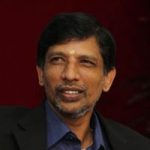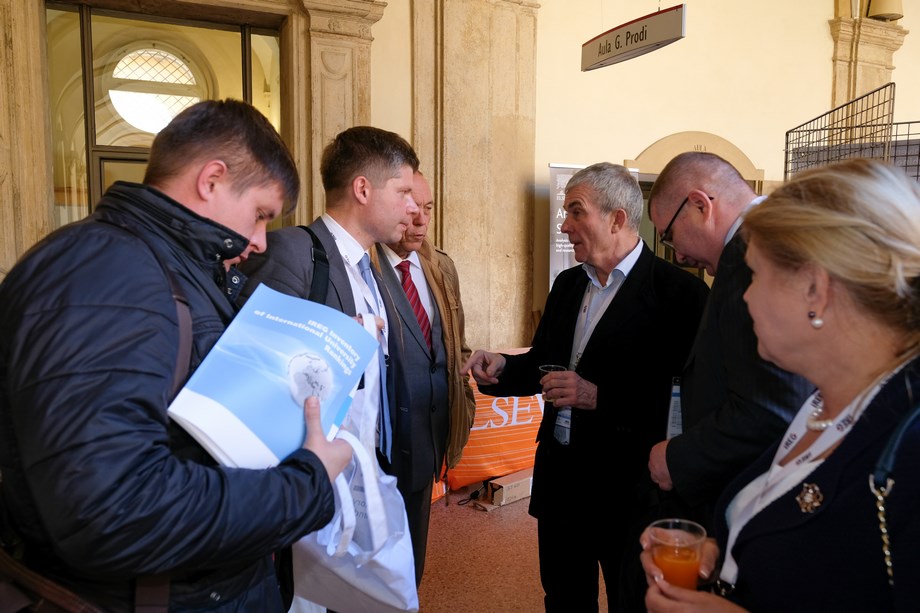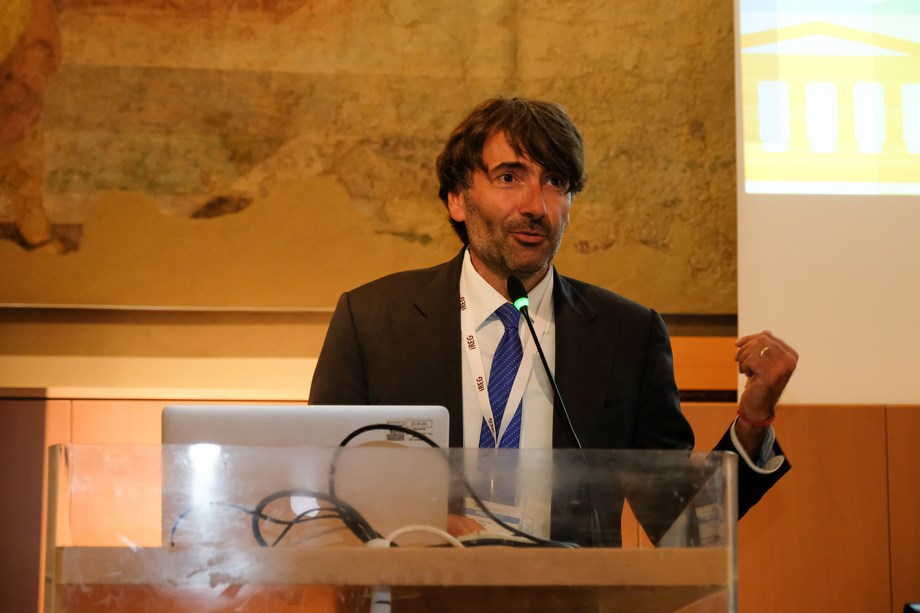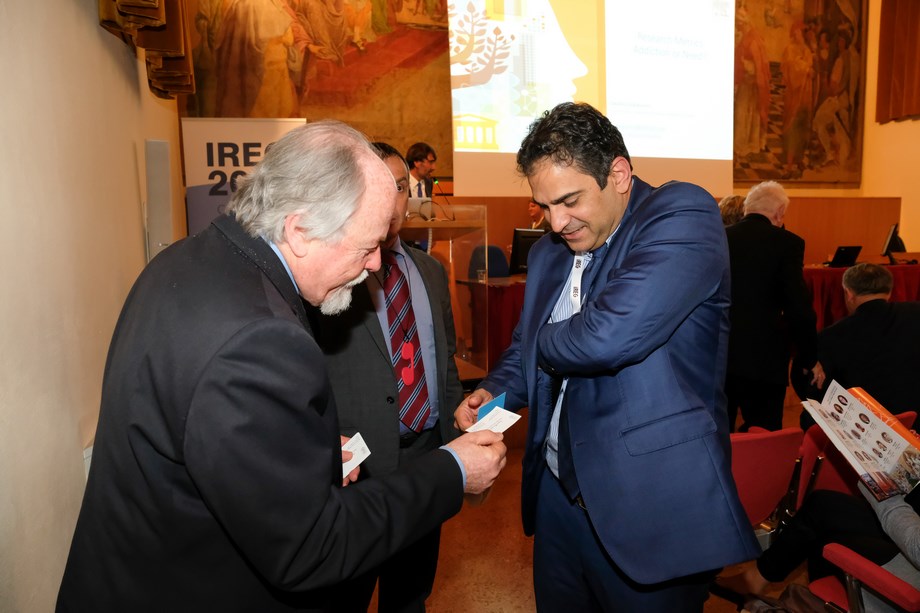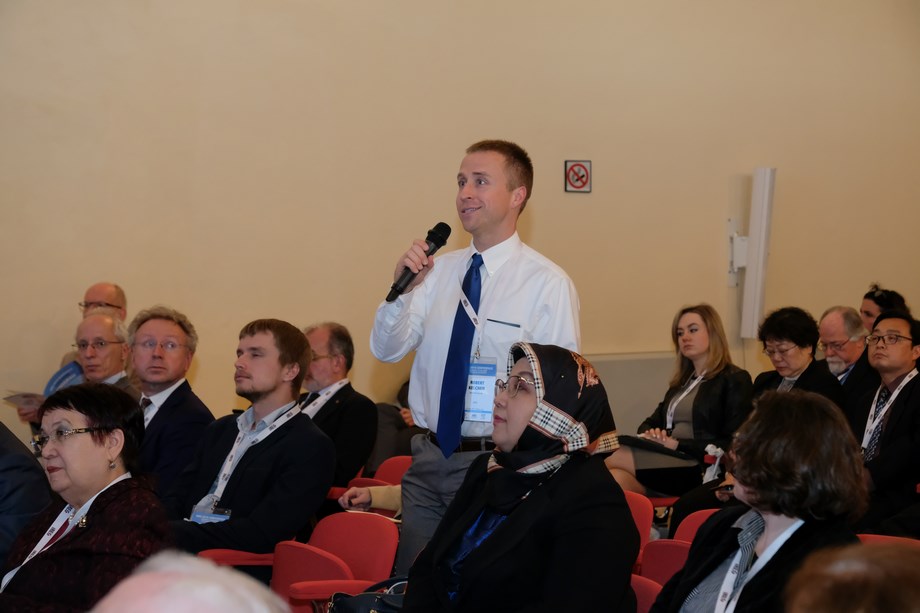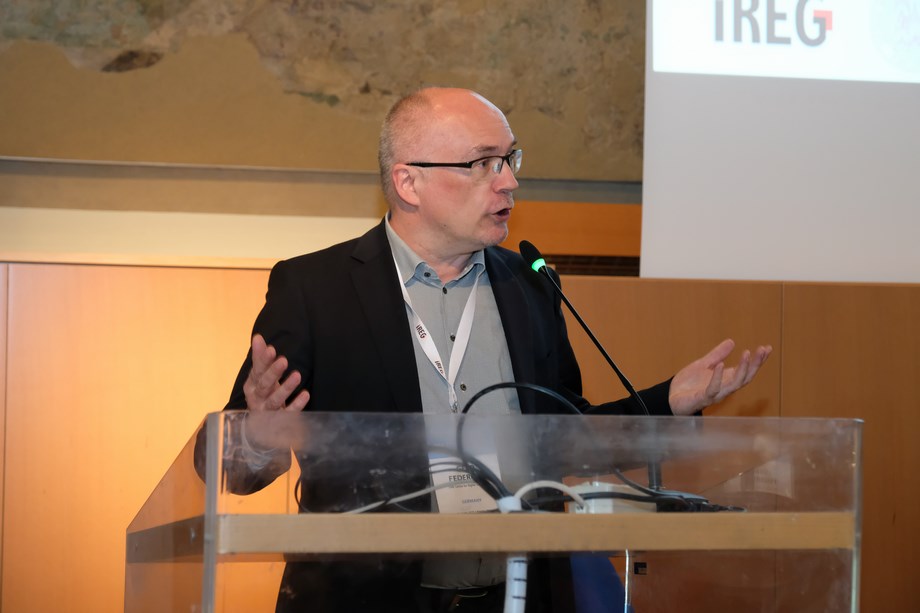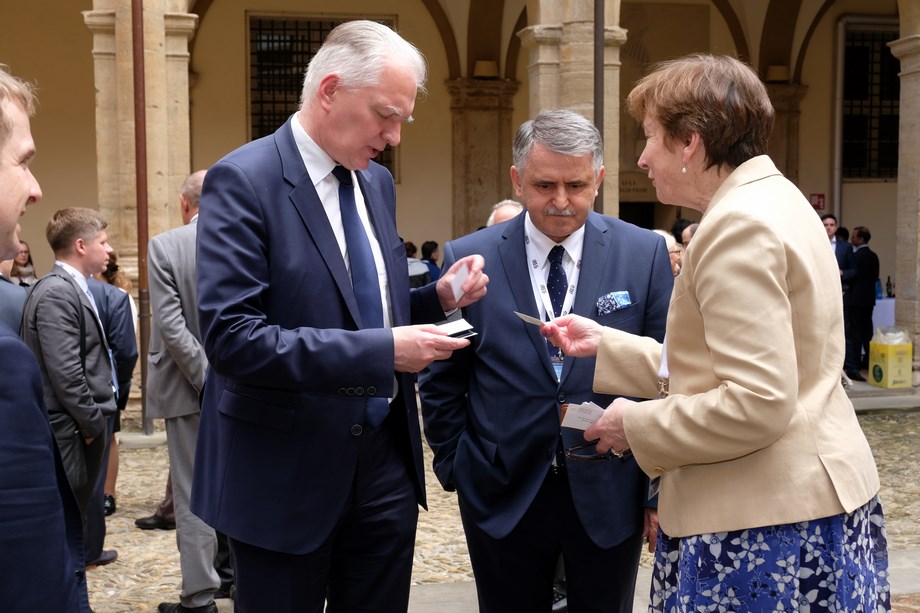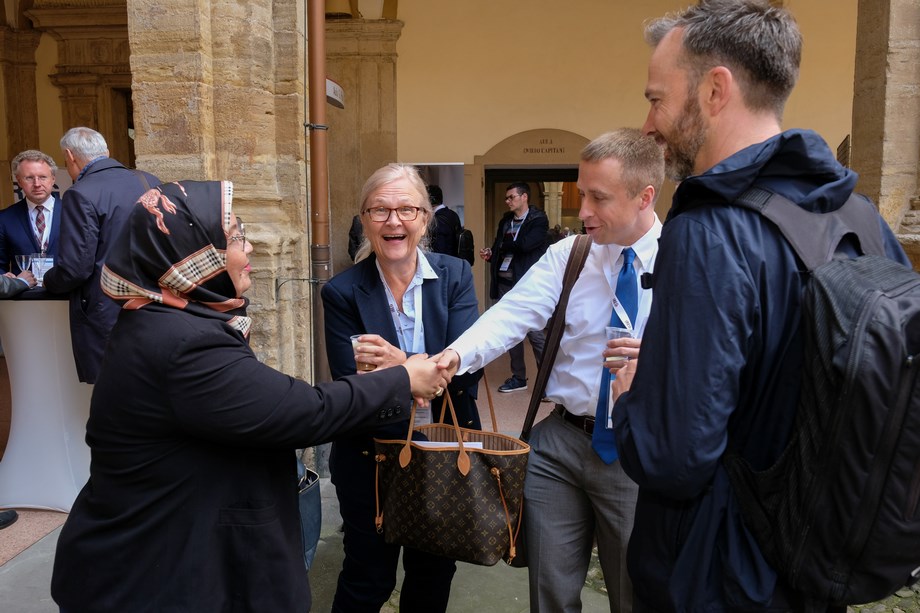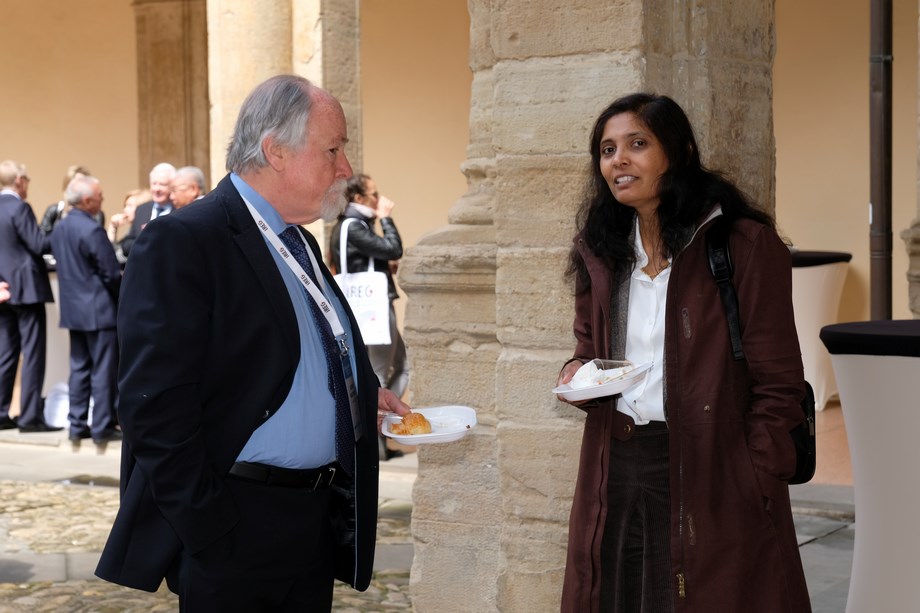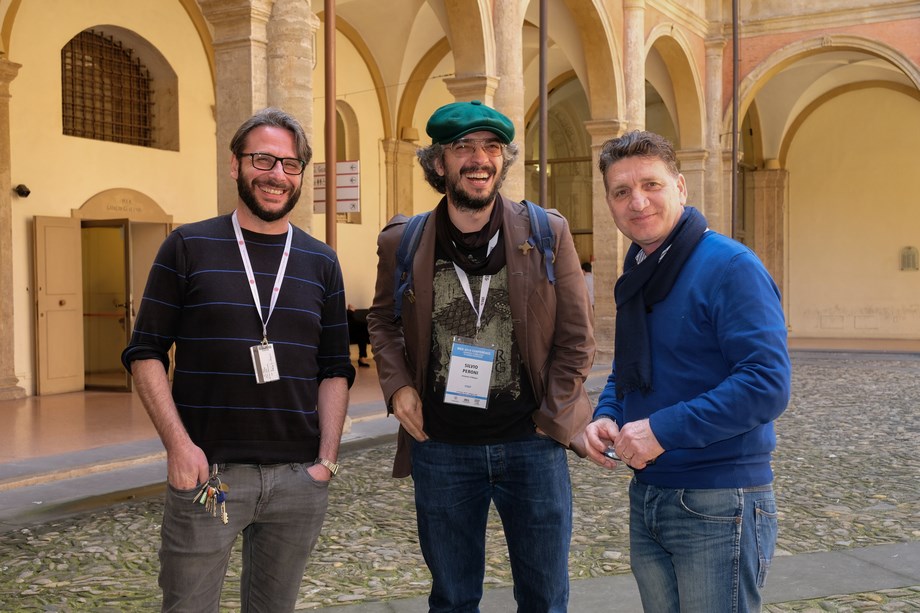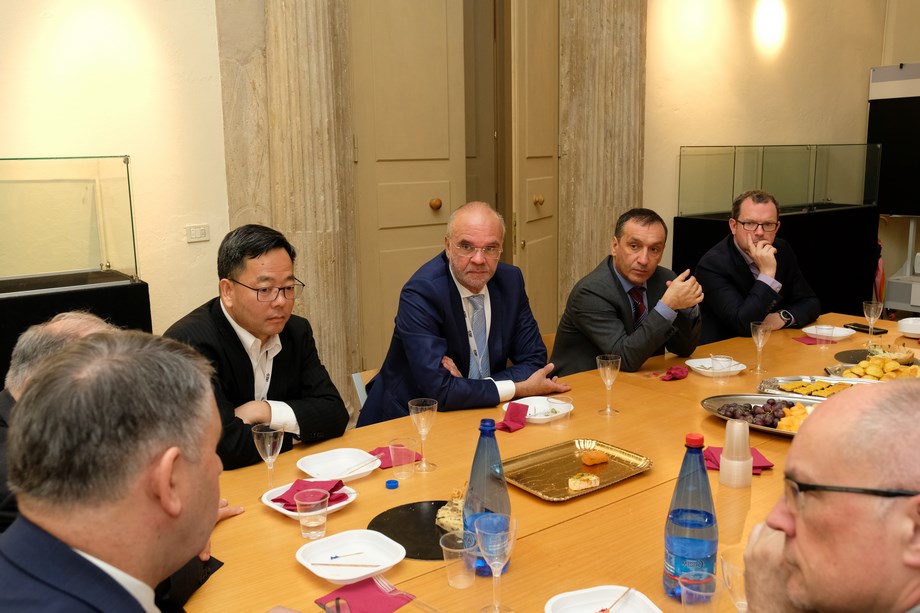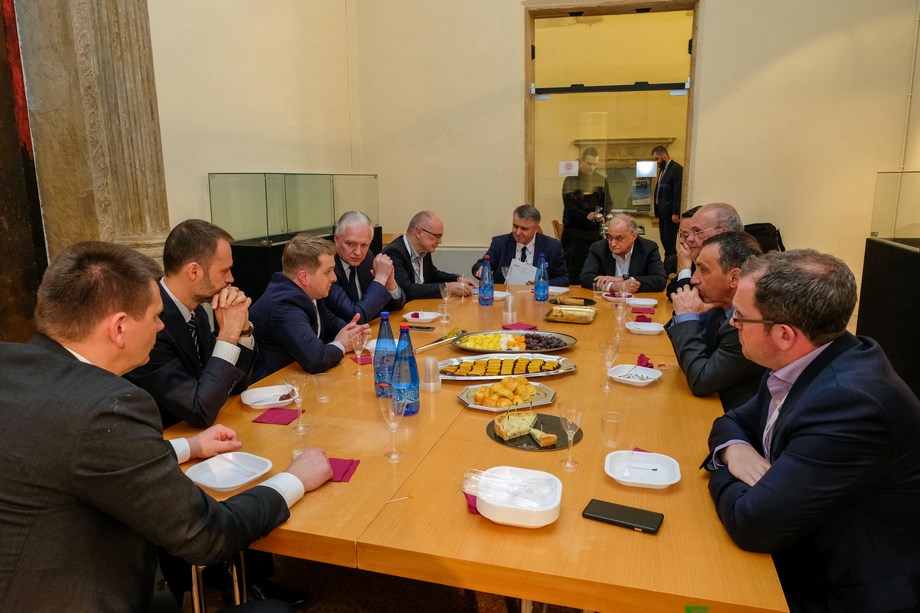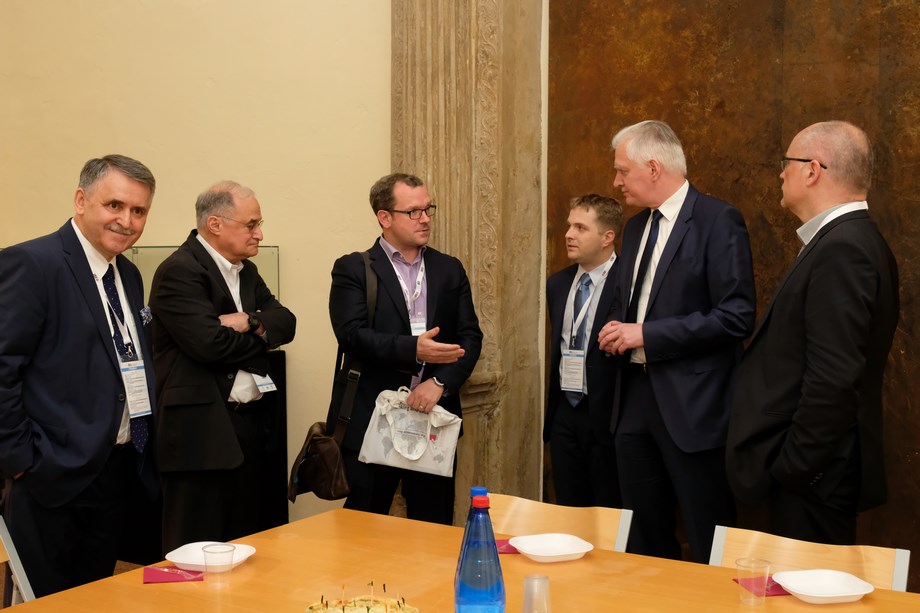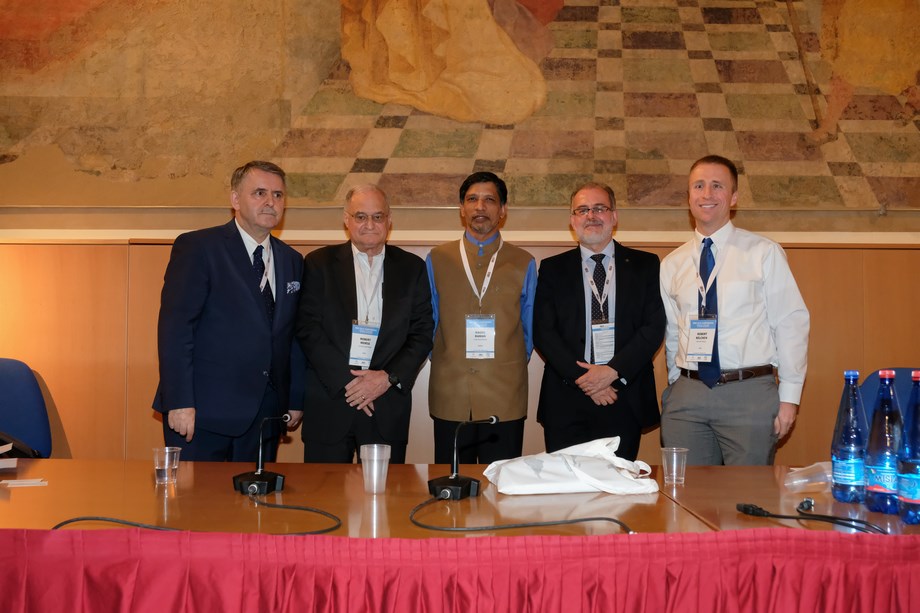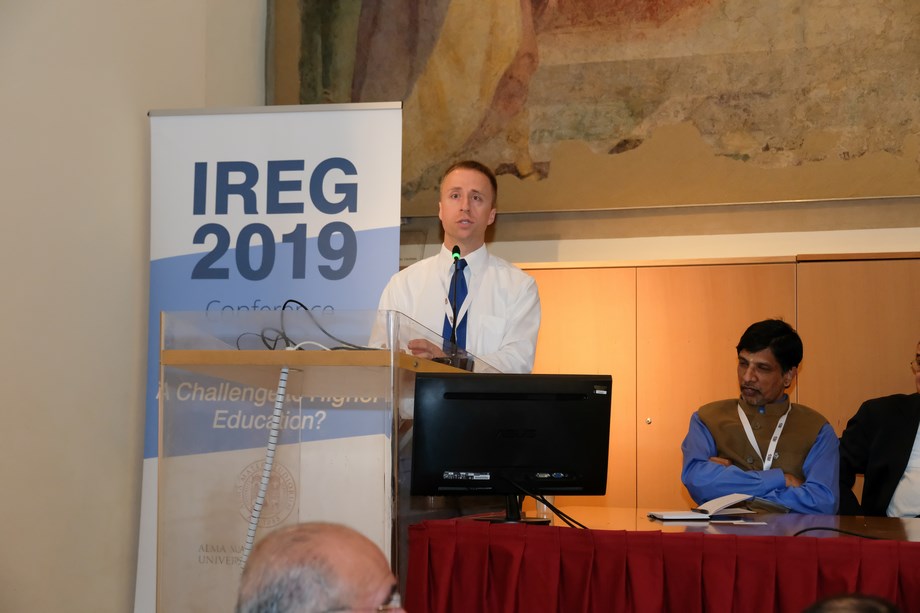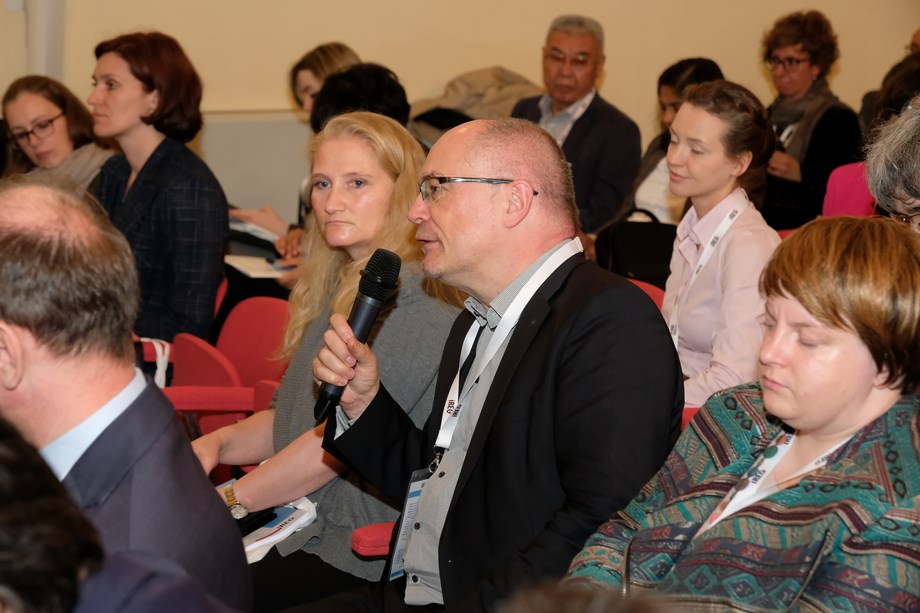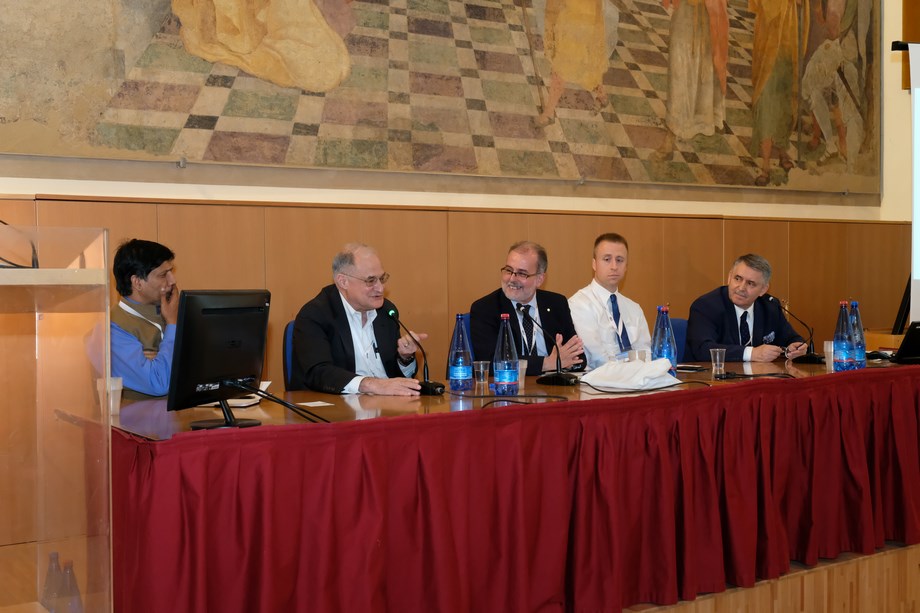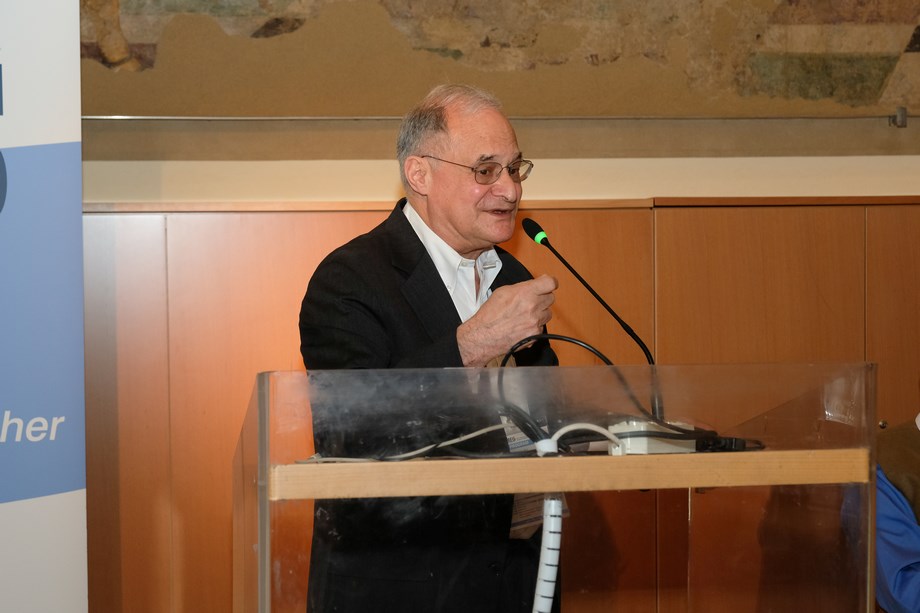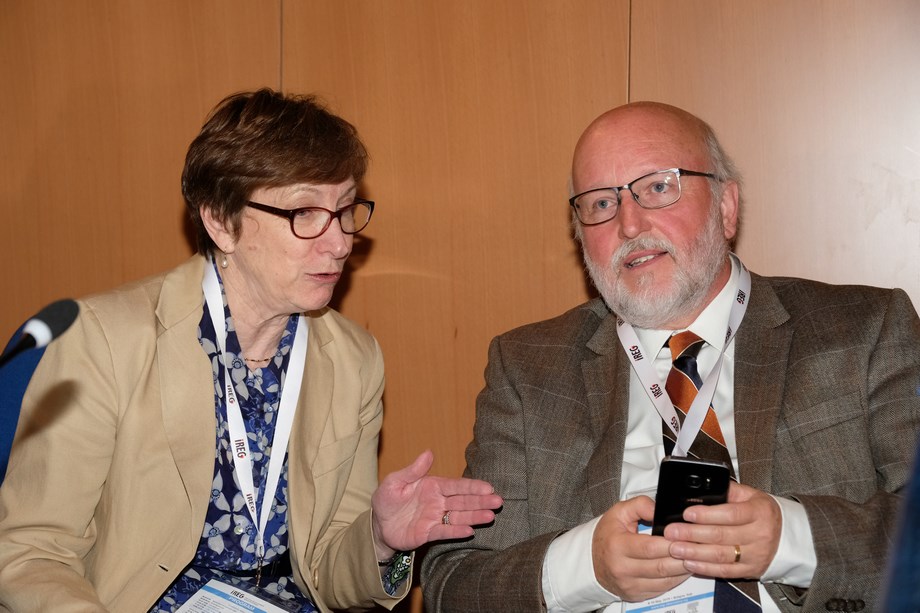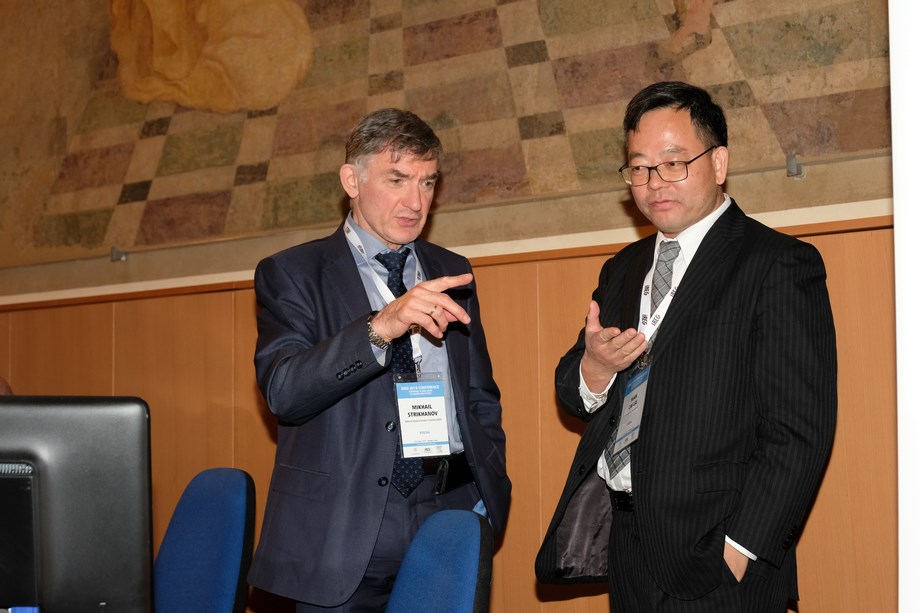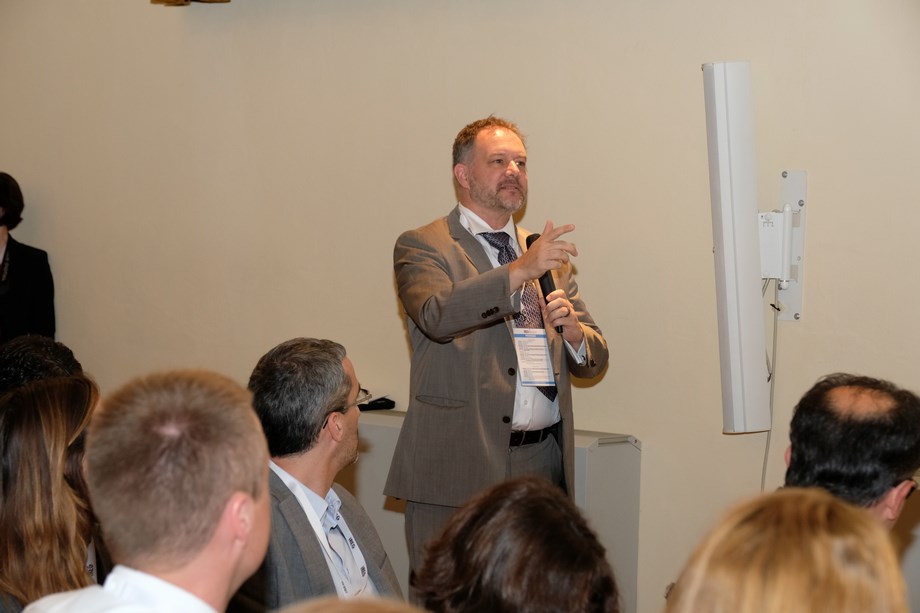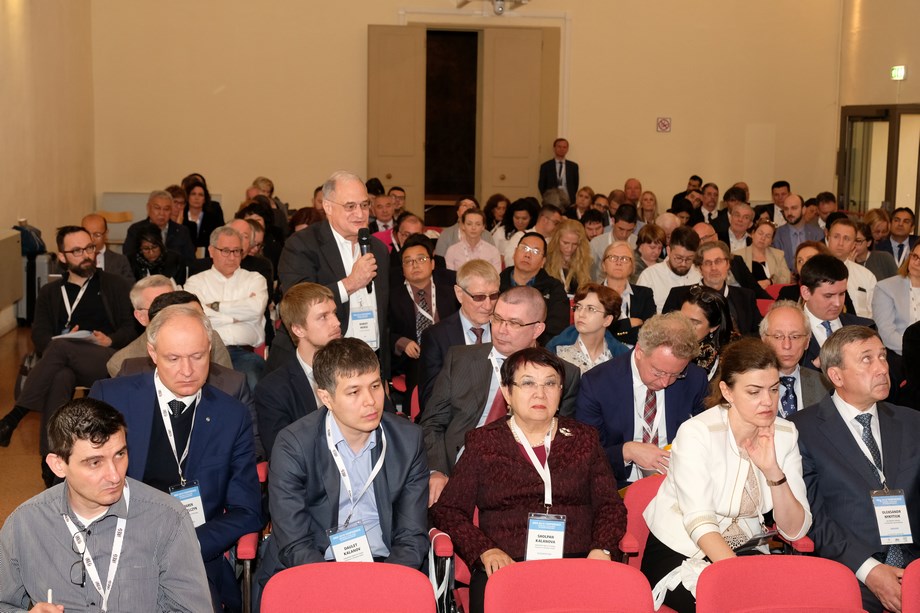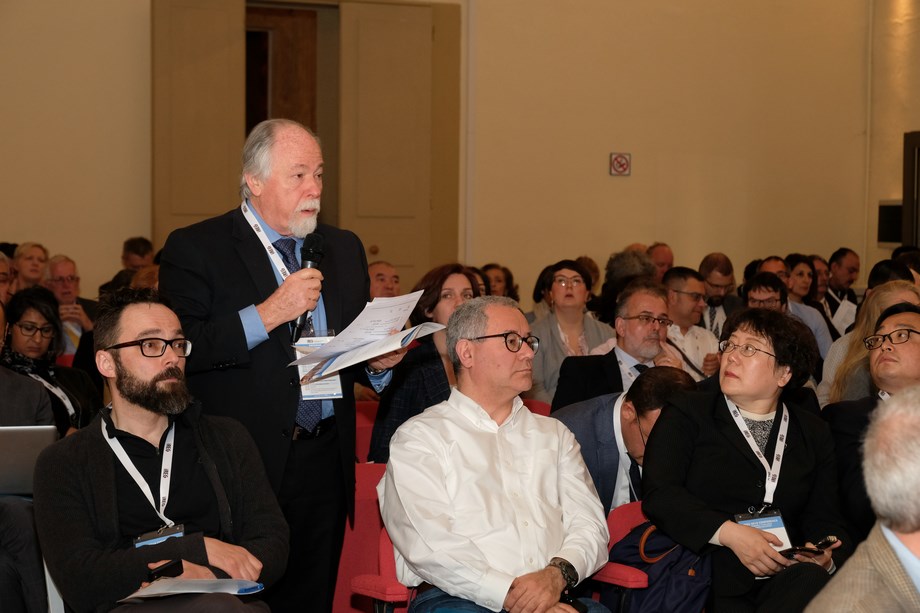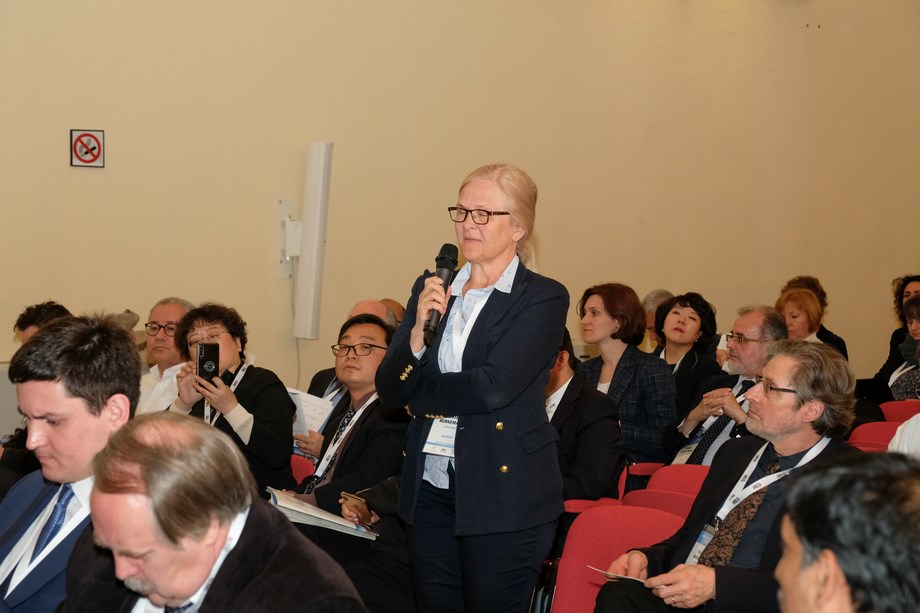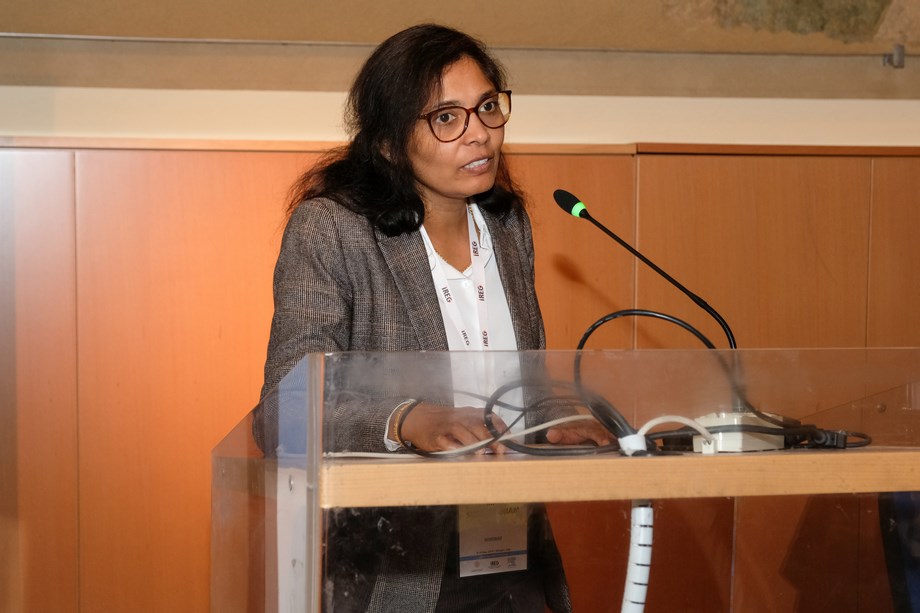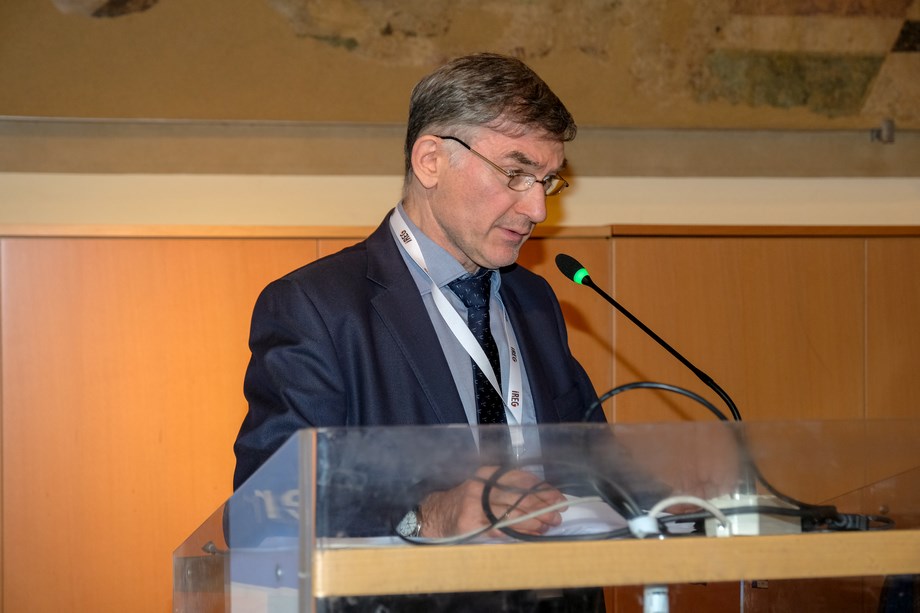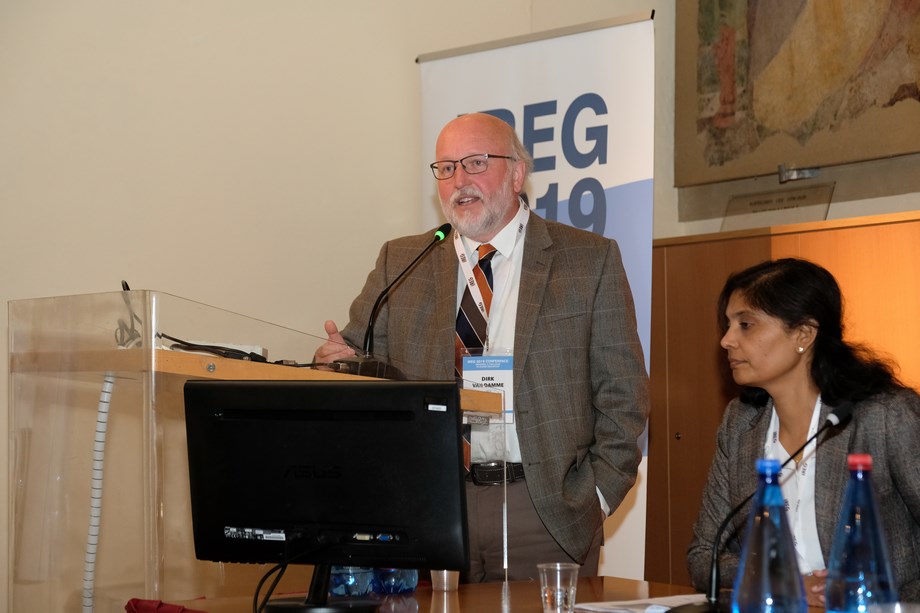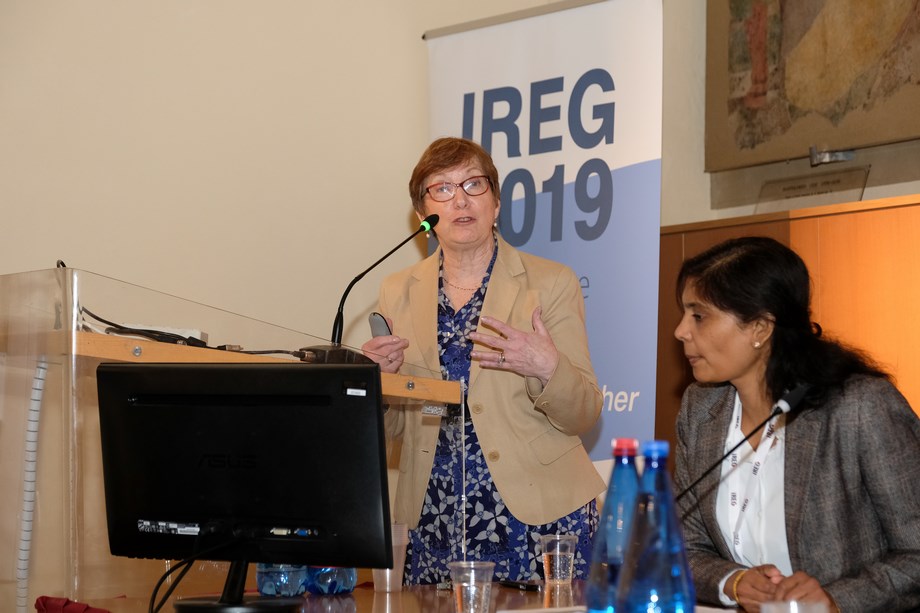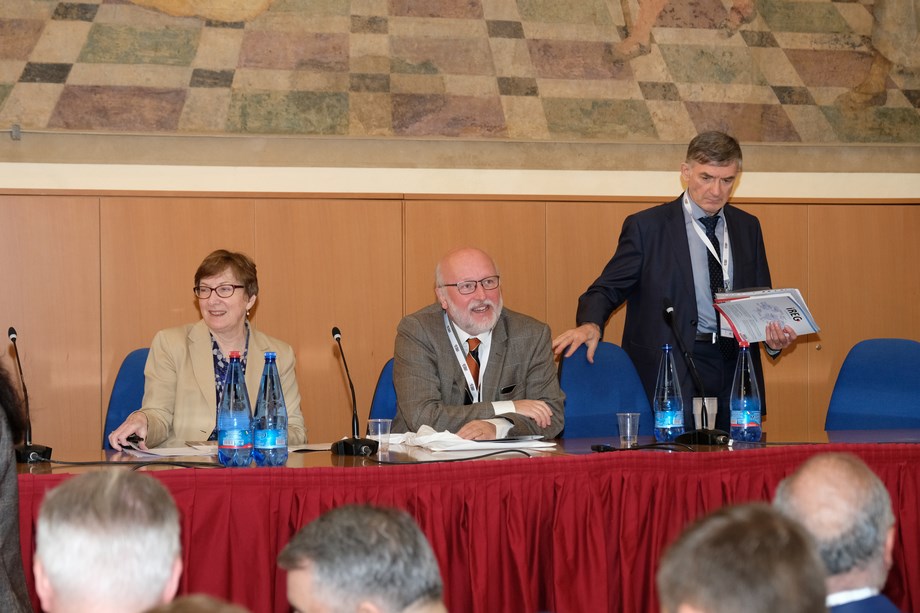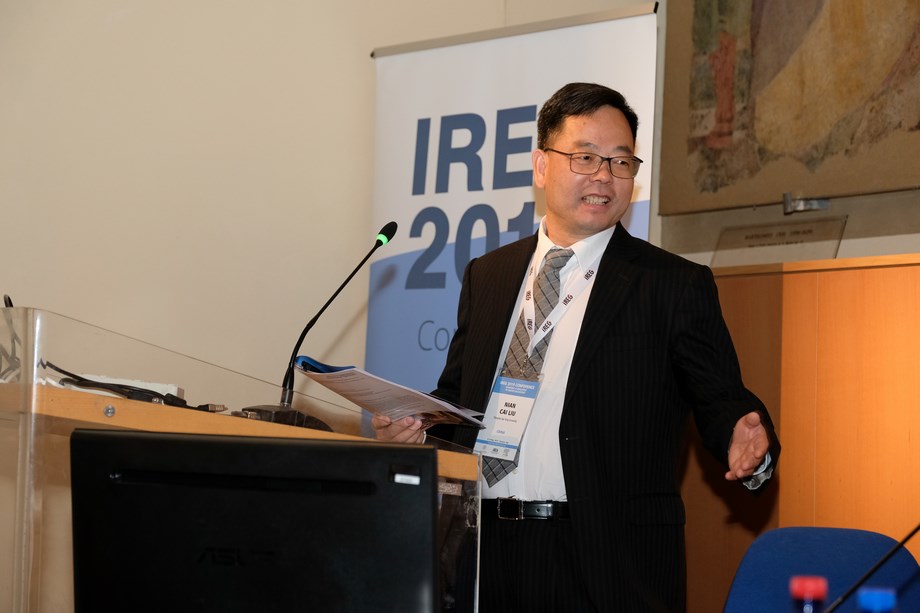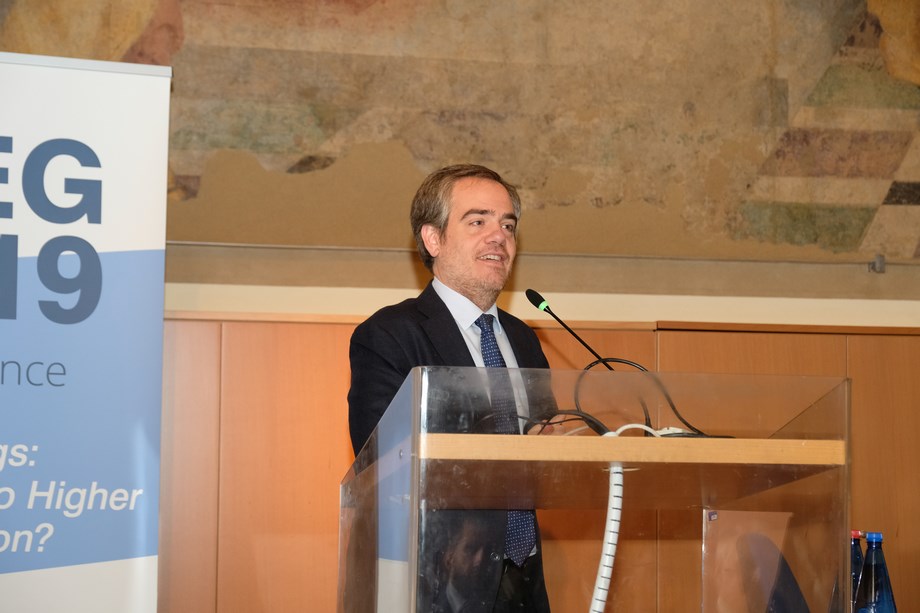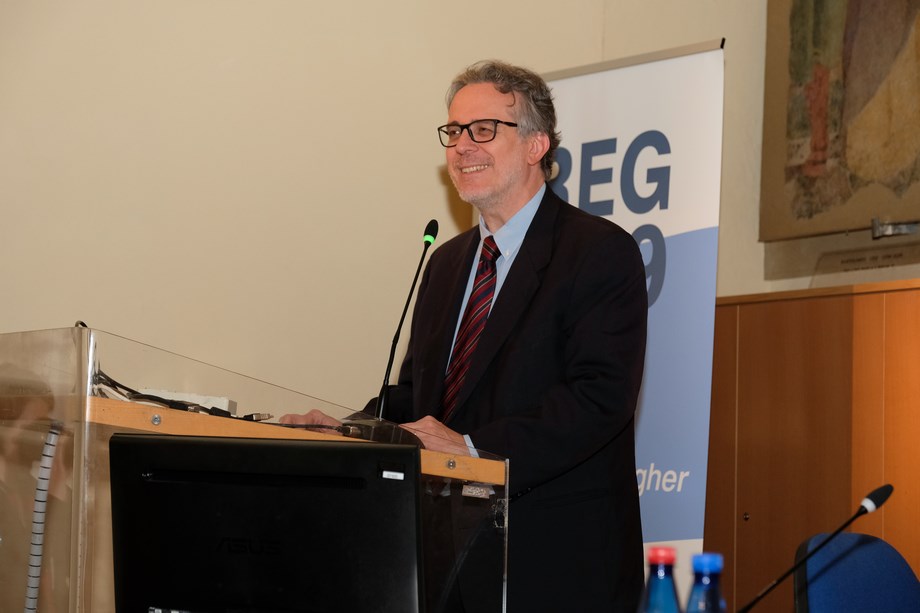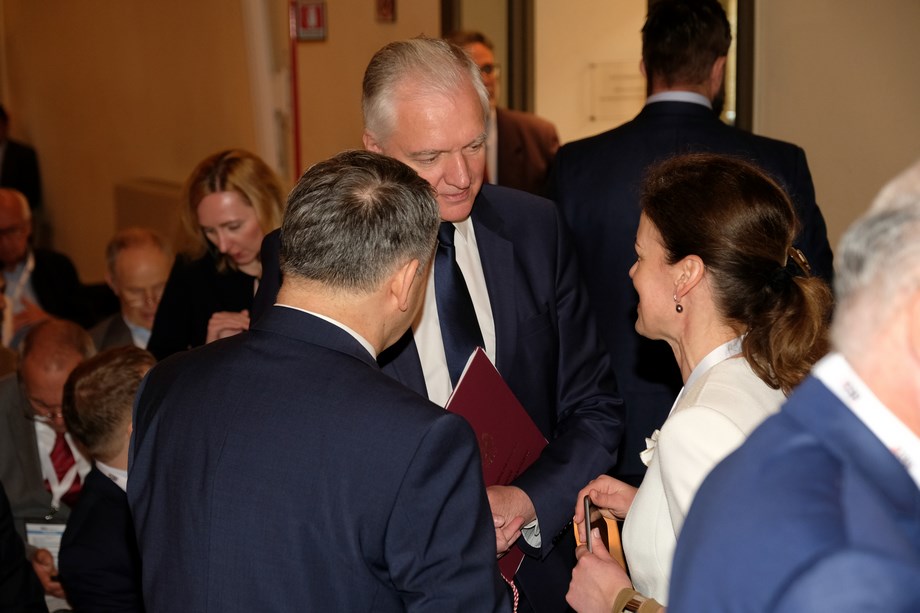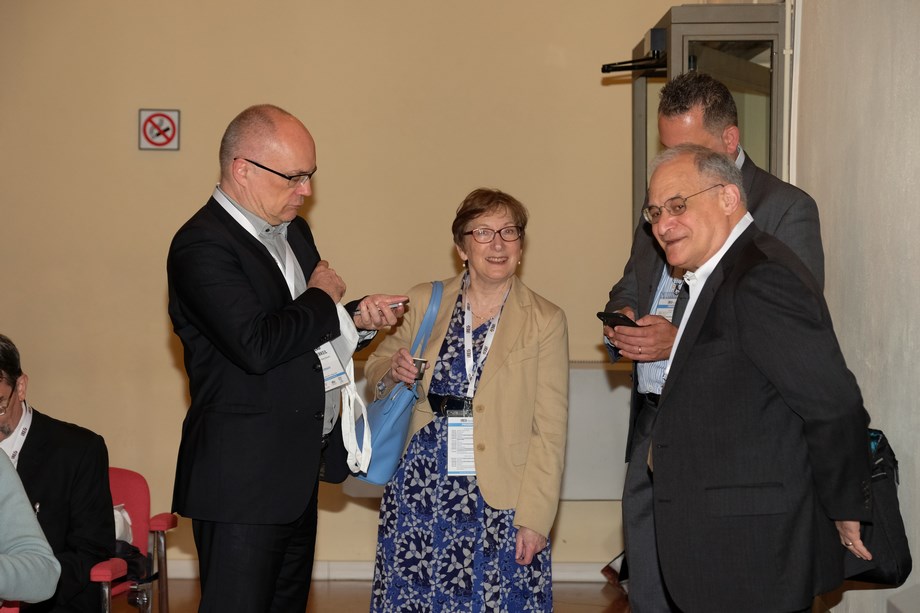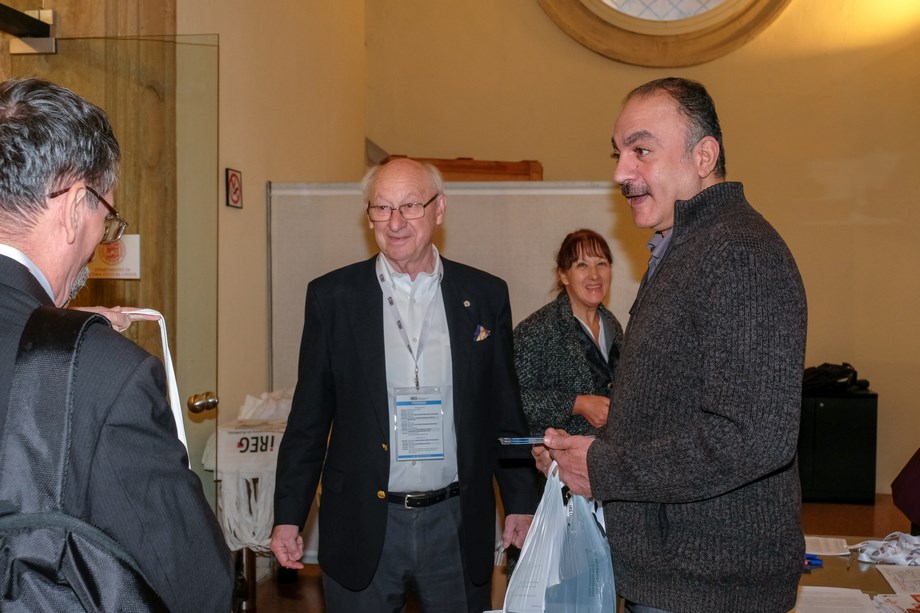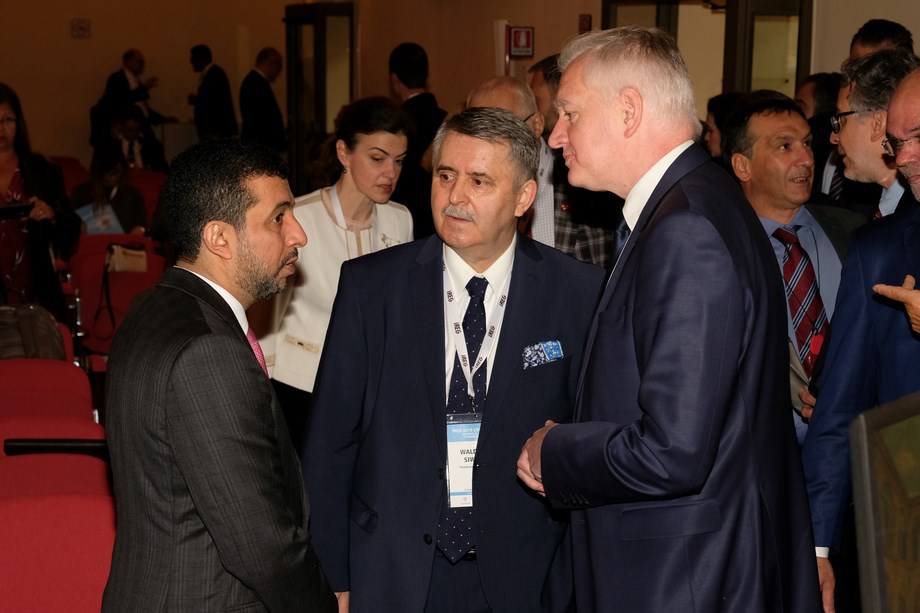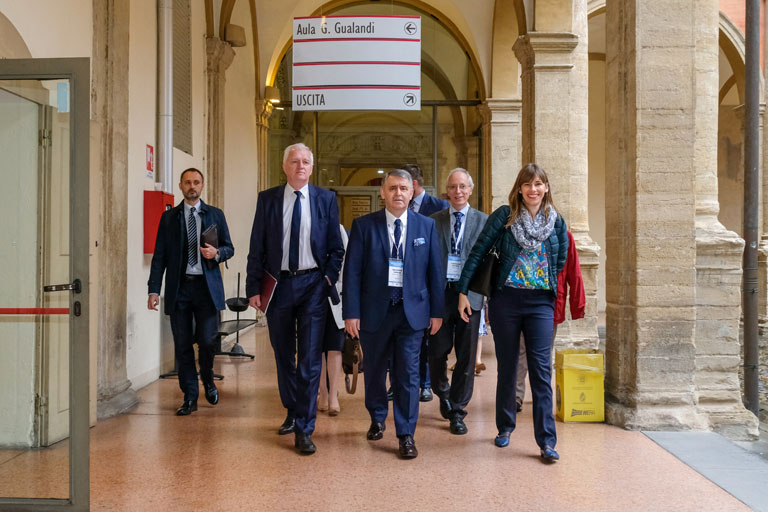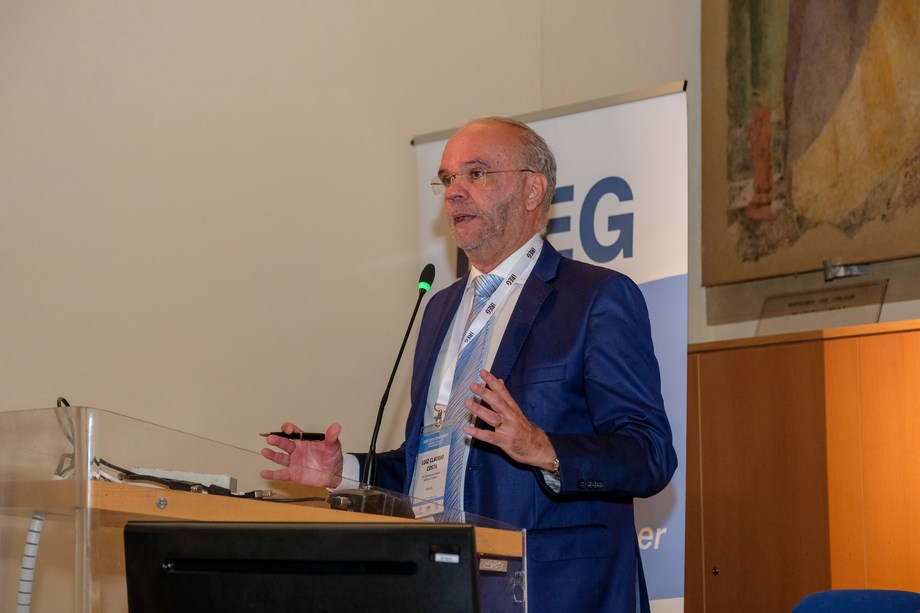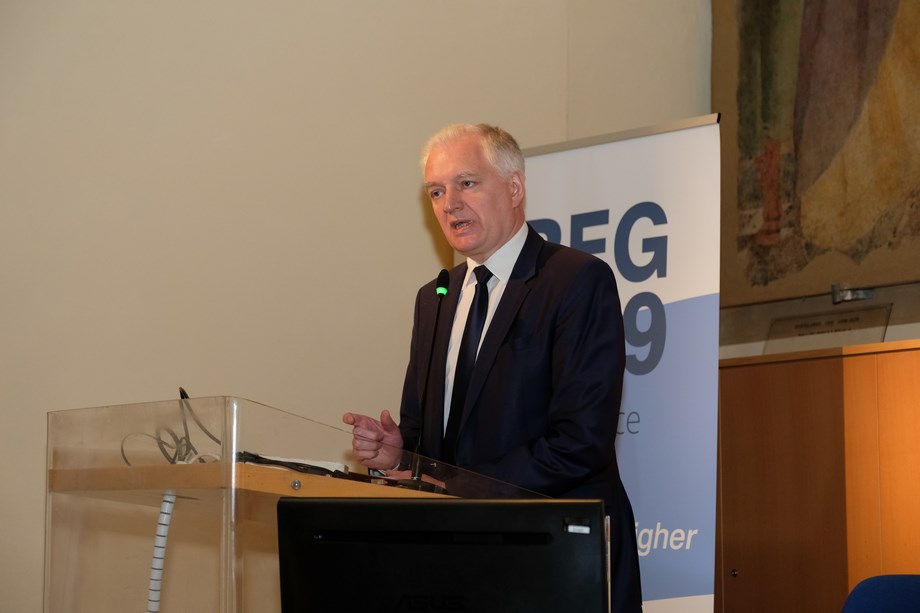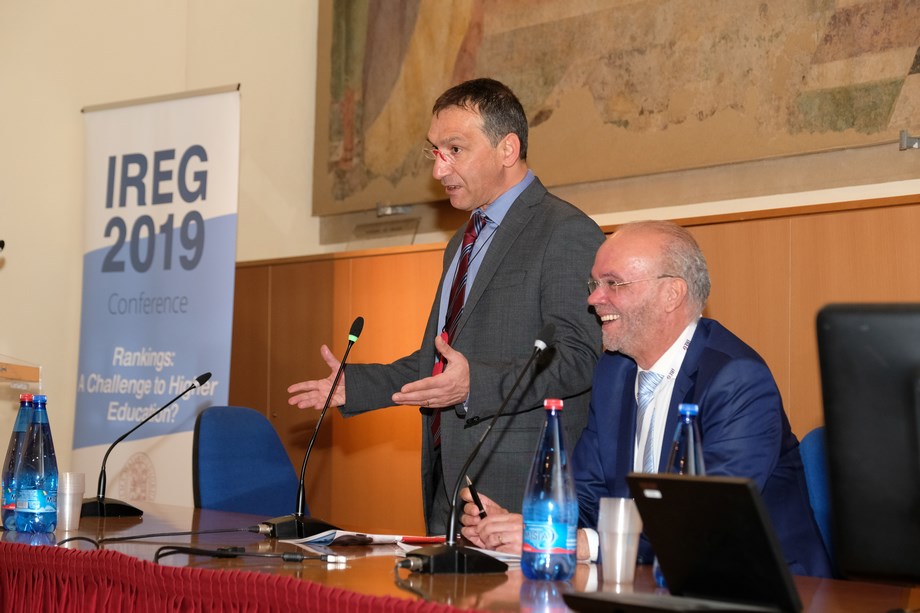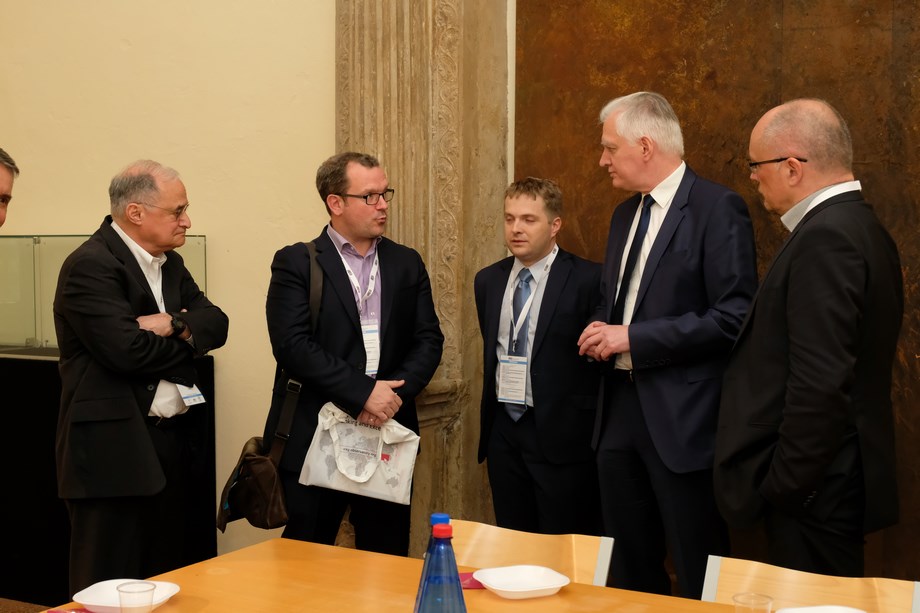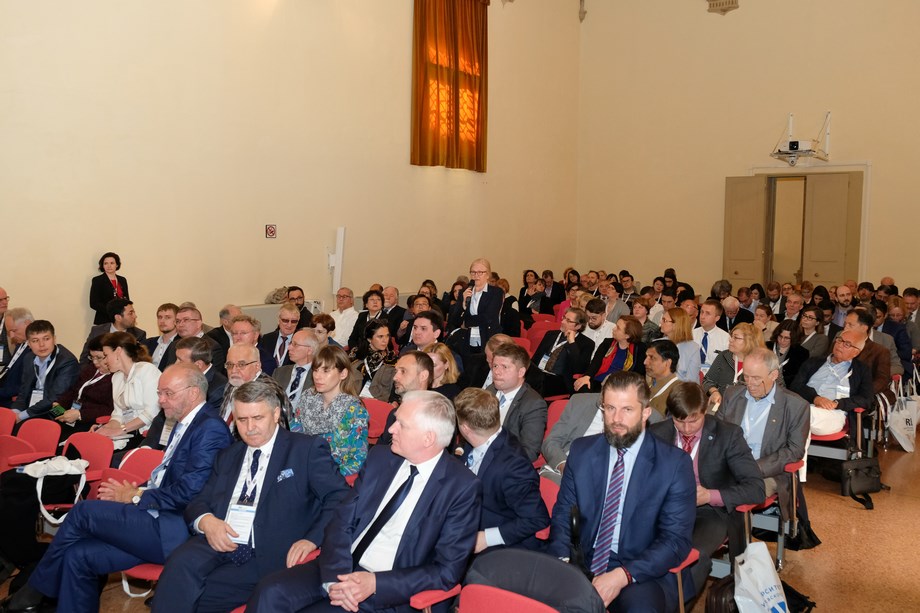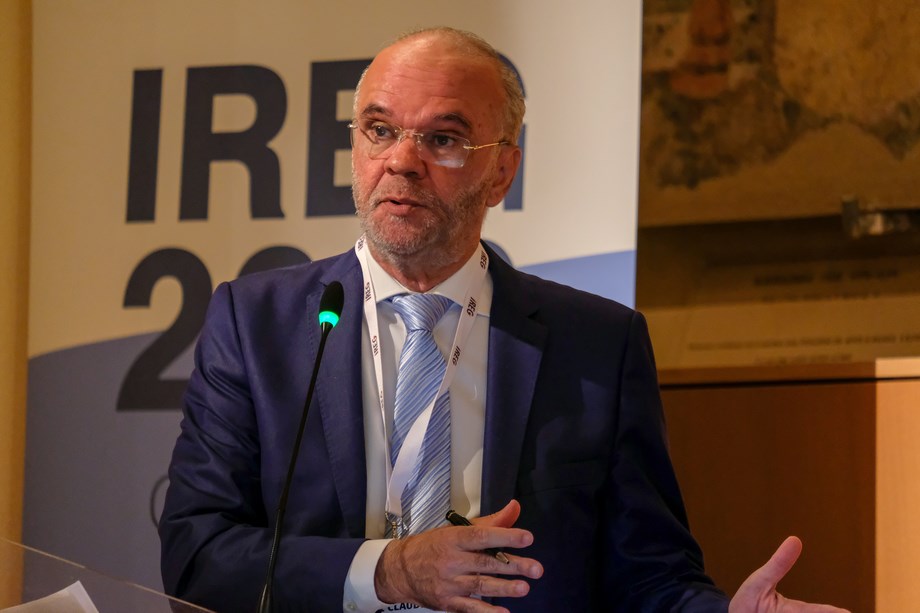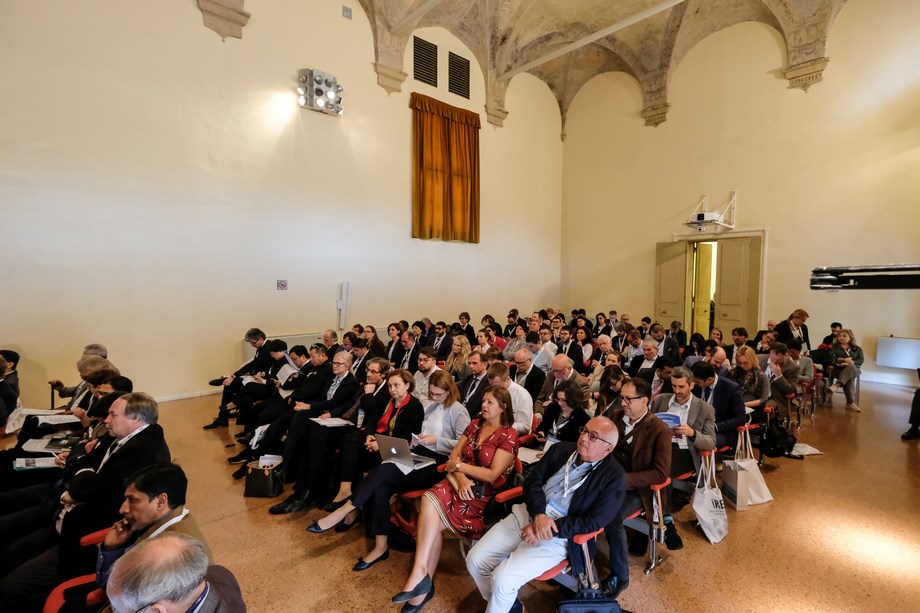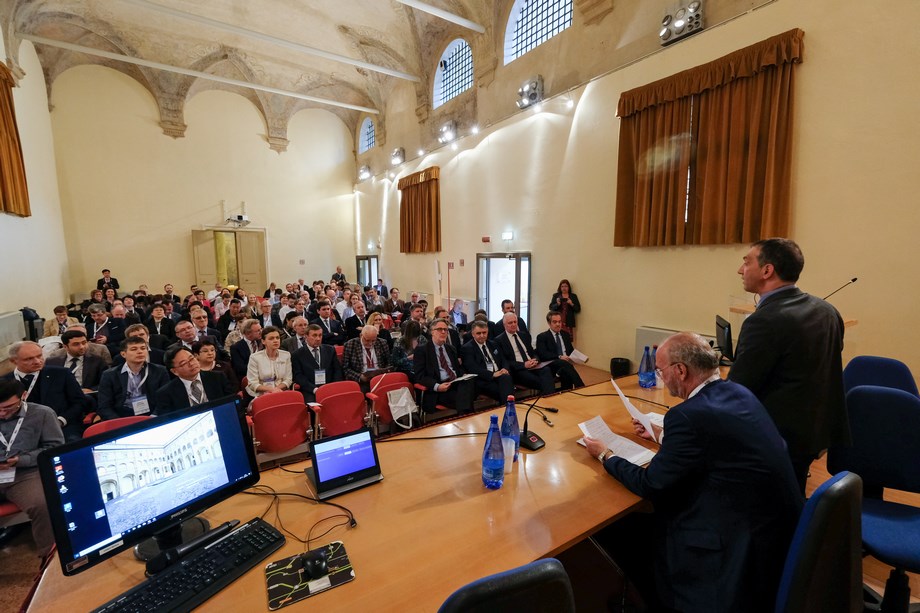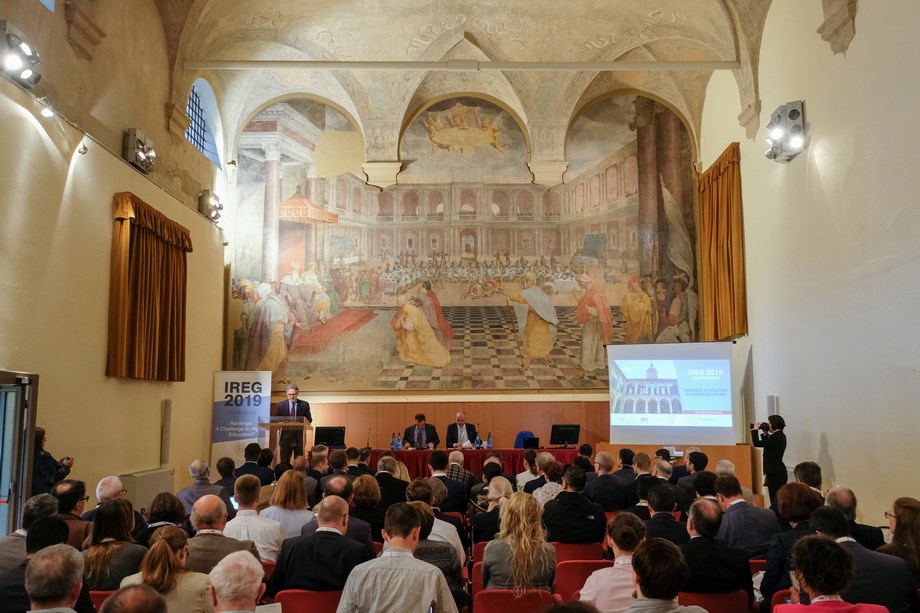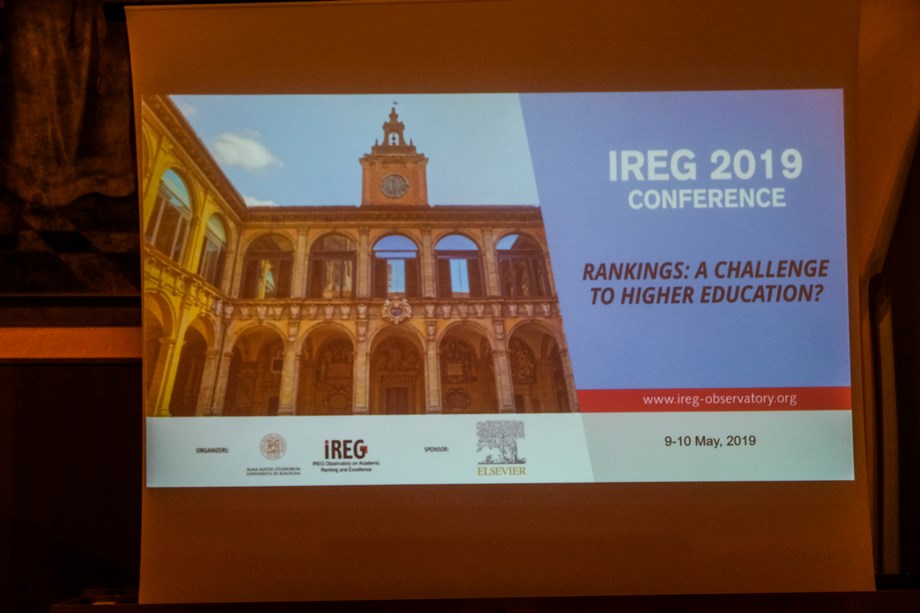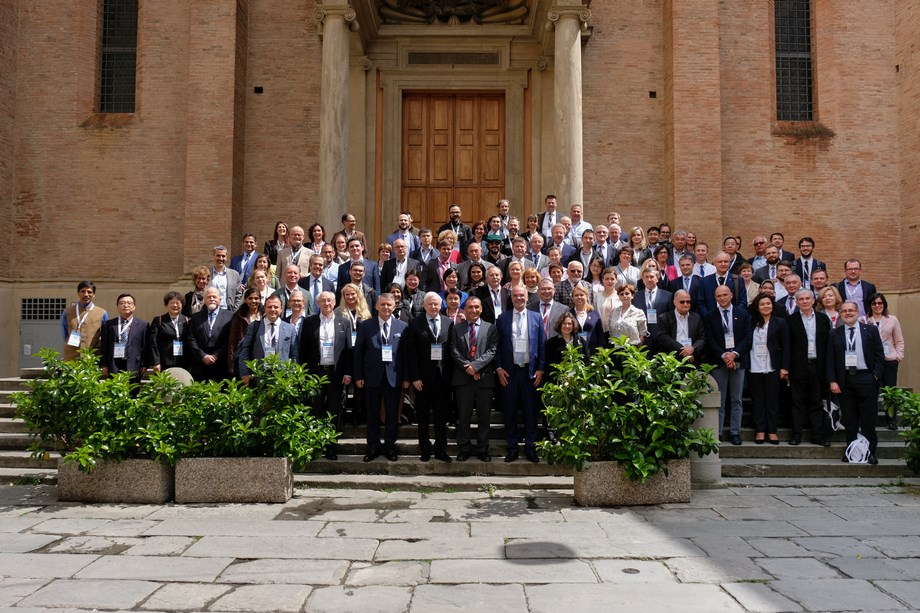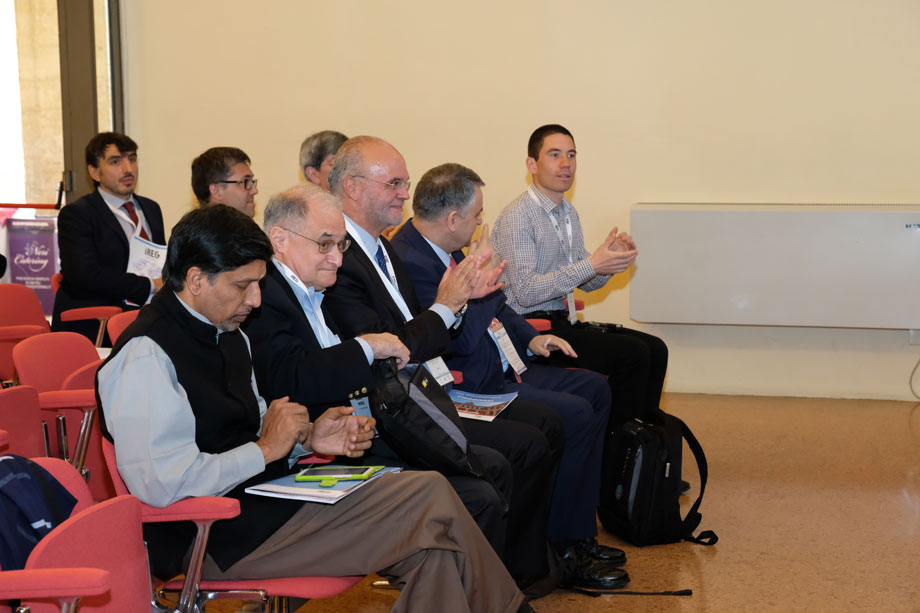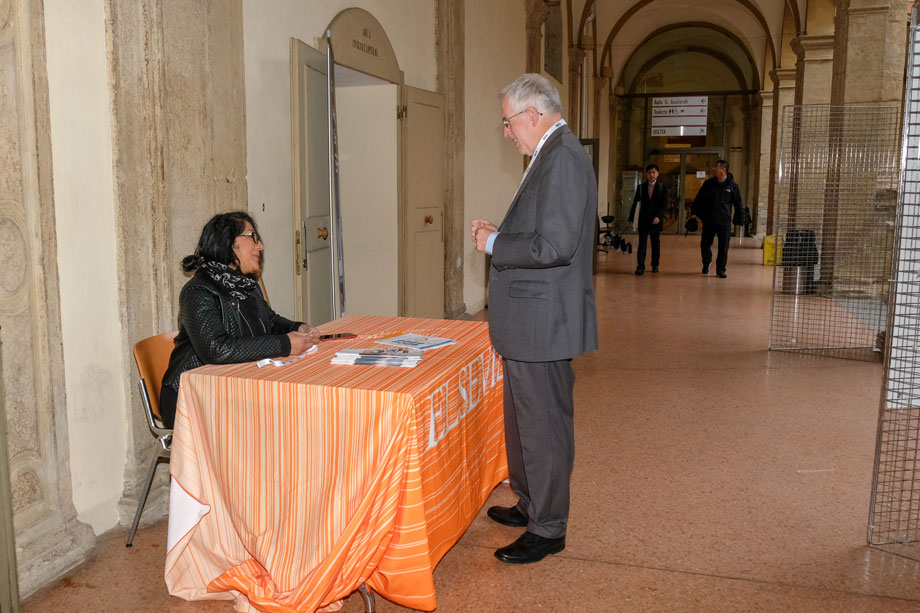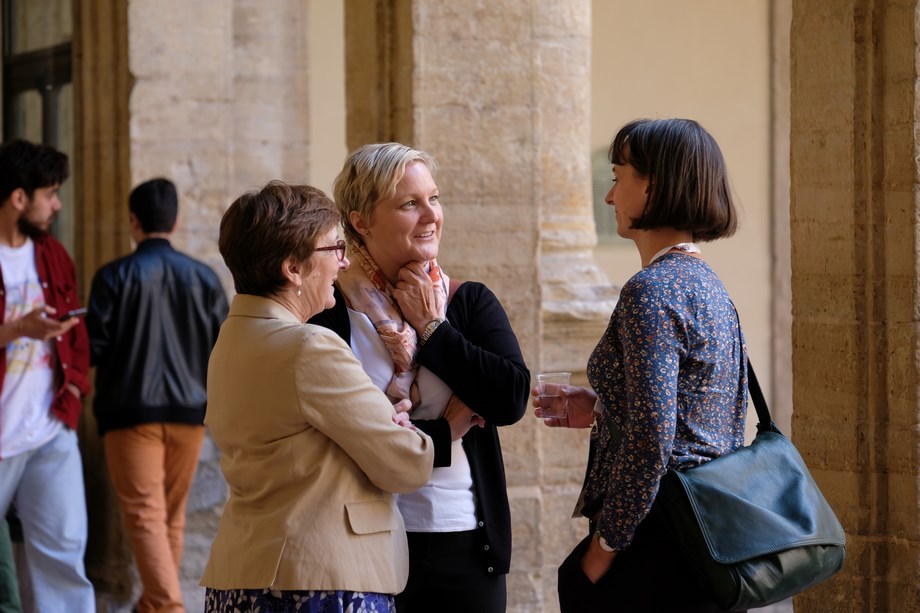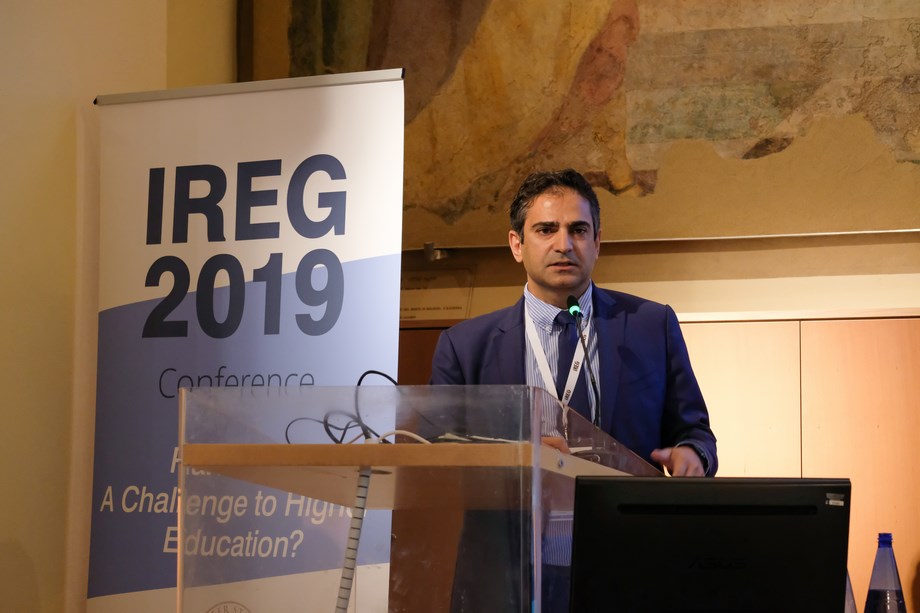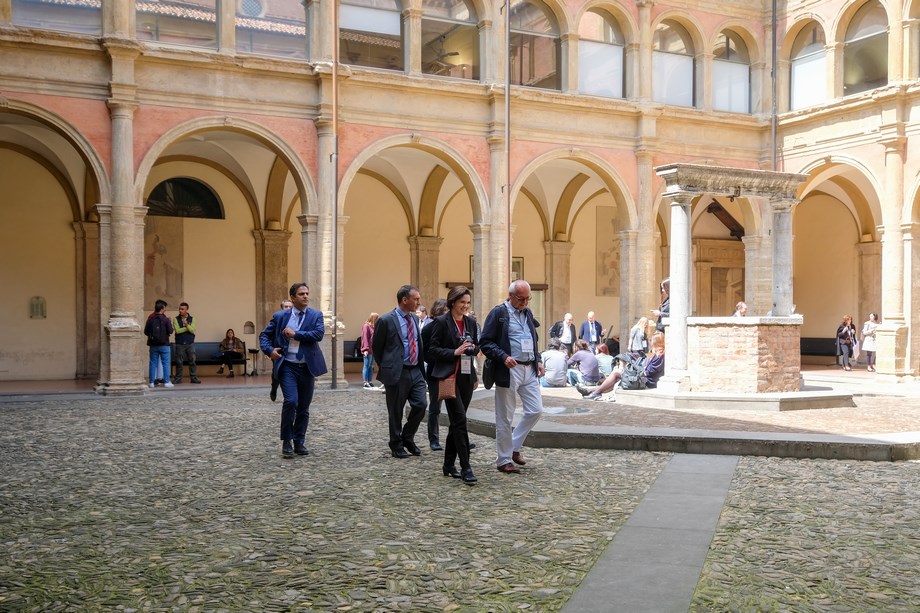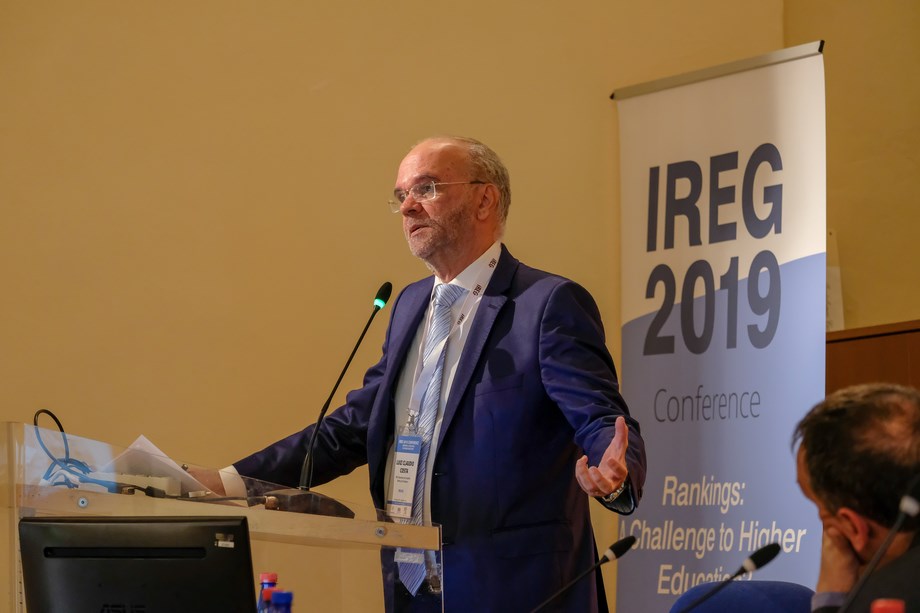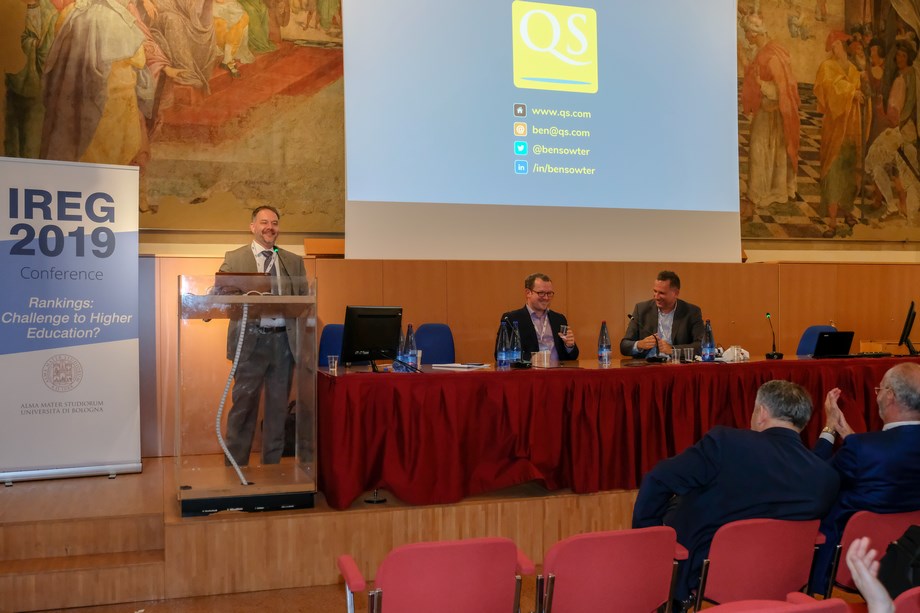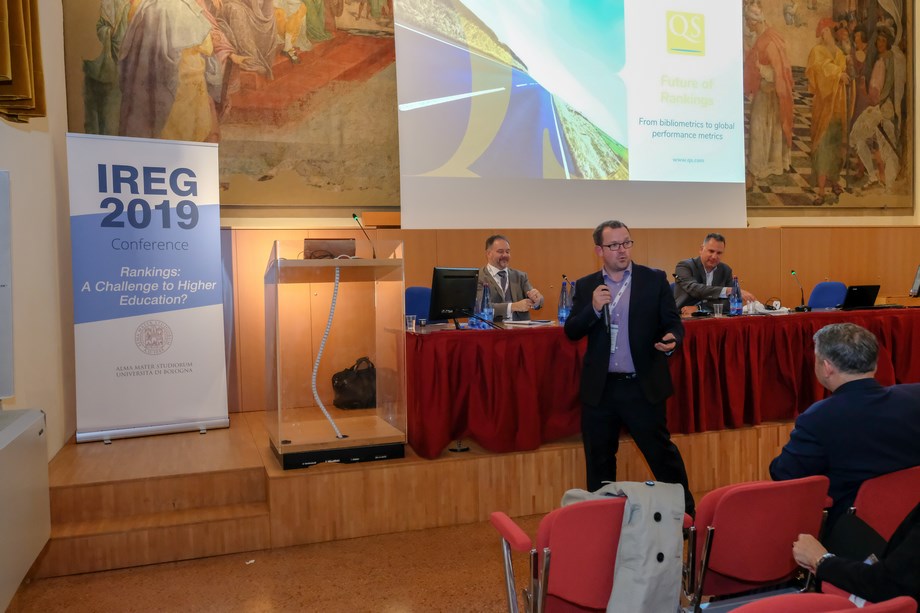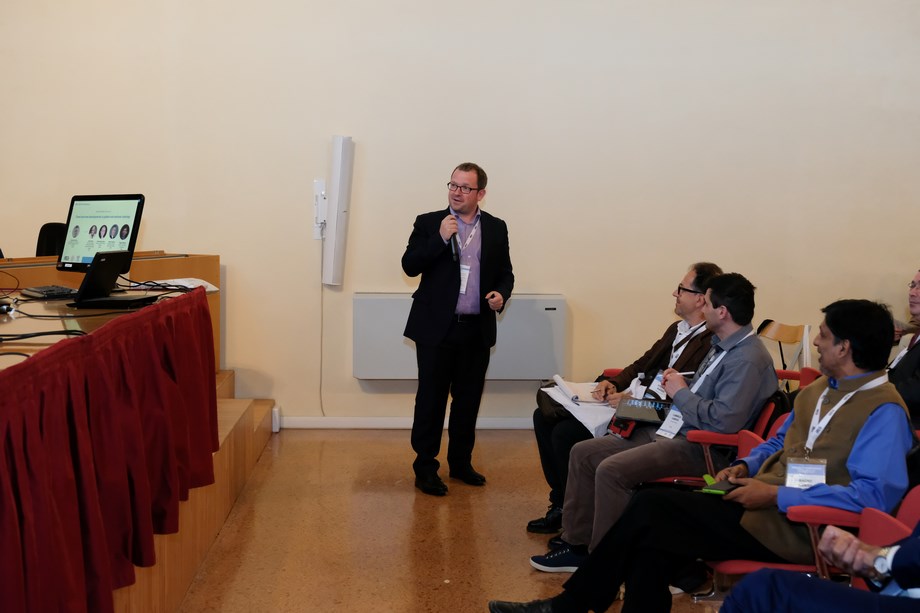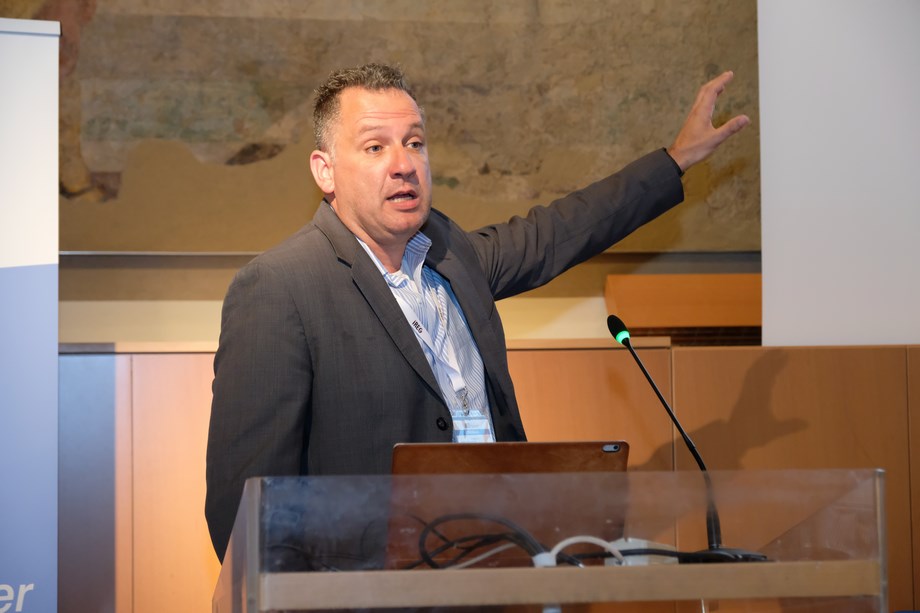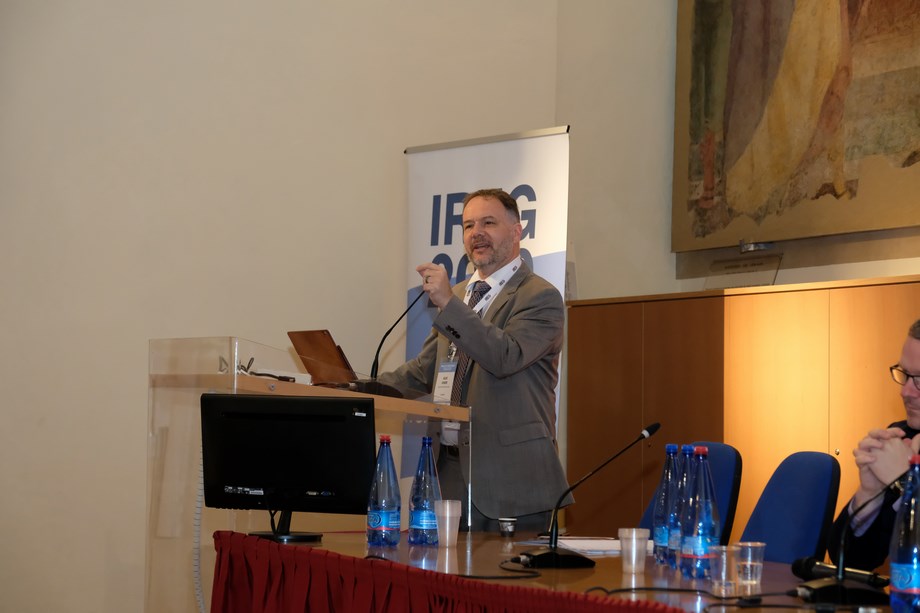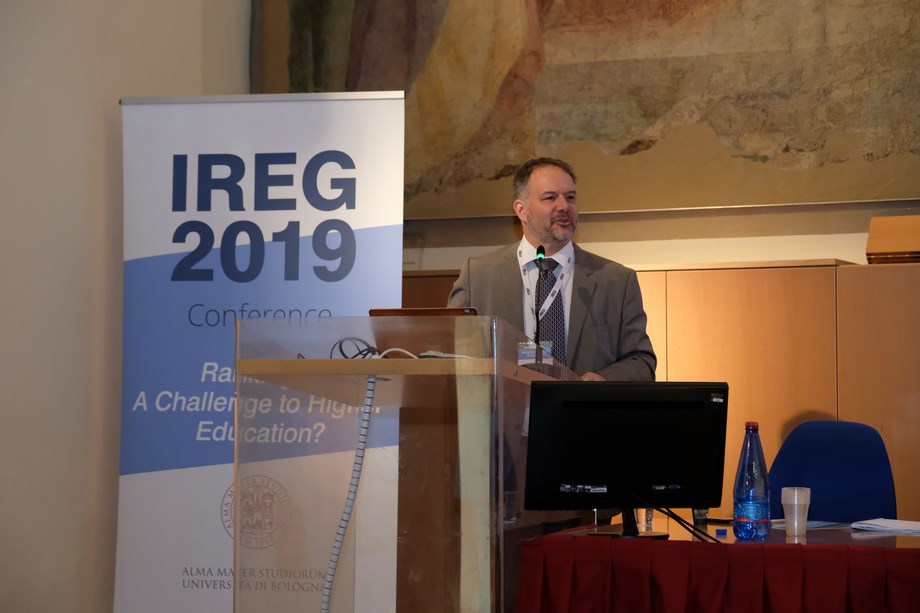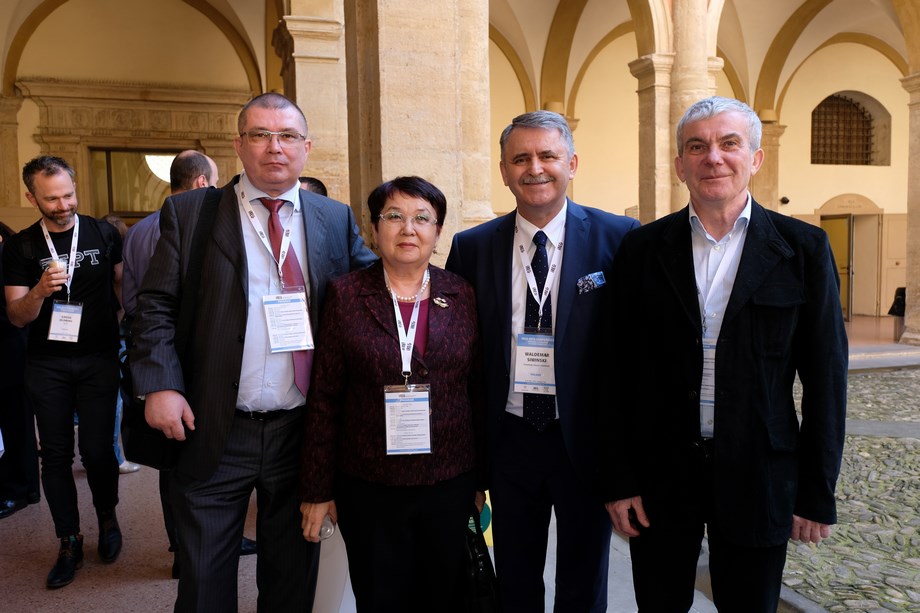
IREG 2019
Conference
Rankings: A Challange
to Higher Education?
BOLOGNA / ITALY 8-10 MAY 2019
Organizers:

IREG Observatory
on Academic Ranking and Excellence
www.ireg-observatory.org
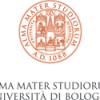
ALMA MATER STUDIORUM
https://www.unibo.it/en
INVITATION
IREG 2019 Conference in Bologna, ITALY
Rankings: A Challange to Higher Education
The growth of university rankings have not been neutral to the way higher education functions both on the national and the global scale. Some governments have been pouring billions of dollars into the “excellence initiatives” to elevate international position of their universities; universities themselves, rankings in mind, have been implementing policies hoping to increase their competitiveness and international visibility. Rankings have become more sophisticated and statistically robust. Many institutions seem to have figured out that there is something to learn from them even if they disapprove of the methodology or dislike the results.
Several previous IREG conferences concentrated on a specific aspect of rankings such as: rankings by subject, ranking methodology, employability or excellence. At this conference, we will take a deeper look at the rankings in general and will be asking questions fundamental for university rankings:
- Is there any evidence that rankings are helping universities?
- Are rankings helping students and other stakeholders?
- What will be the impact of Artificial Intelligence and Big Data on rankings?
- How to include online distance teaching into rankings?
- What needs to be done to make rankings better?
Since IREG Observatory on Academic Ranking and Excellence is an organization where both ranking organizations and universities are represented, it is in a unique position to take stock of university rankings from an expert but neutral stand point.
The IREG 2019 Conference 8-10 May 2019 will take place in a very special place, the University of Bologna (Alma Mater Studiorum Universita di Bologna), the oldest university in Europe, located in the beautiful, historic city of Bologna, the capital of the Emilia – Romagna region of Italy.
All who want an inside look into the world of university rankings, meet the top people of the global rankings, and learn how rankings and universities influence each other, are cordially invited.
PROGRAM
8-10 May, 2019
ALMA MATER STUDIORUM – Università di Bologna
Department of History and Cultures – Giorgio Prodi Lecture Hall
Piazza San Giovanni in Monte 2 – 40124 Bologna
Program outline
May 8, 2019 (Wednesday)
Venue: Alma Mater Studiorum Università di Bologna, Rectorate, Via Zamboni 33 – 40126 Bologna
- Whole day
- Arrival of participants
- 16:30 – 18:00
- Executive Committee meeting (members only)
Location: ALMA MATER STUDIORUM – Università di Bologna, Rectorate, Giunta Hall, - 19:00 – 21:00
- Welcome Reception Location: ALMA MATER STUDIORUM – Università di Bologna, Rectorate,
Cortile del Pozzo (internal garden), Rectorate, Via Zamboni 33 – 40126 Bologna
May 9, 2019 (Thursday)
Venue: University of Bologna, Department of History and Cultures, Giorgio Prodi Lecture Hall, Piazza San Giovanni in Monte 2 – 40124 Bologna
- 08:00 – 09:00
- Registration and welcome coffee
- 9.00 – 9.30
Opening Session
- Luiz C. Costa, President, IREG Observatory on Academic Ranking and Excellence, Academic Vice Rector of IESB University (Brazil)
- Francesco Ubertini, Rector, University of Bologna (Italy)
- Gaetano Manfredi, President, Conference of Italian University Rectors (CRUI), Rector, University of Naples “Federico II” (Italy)
- 9:30 – 10:00
Keynote:
- Jaroslaw Gowin, Deputy Prime Minister and Minister of Science and Higher Education of Poland (Poland): Rankings: a Challenge to Public Policy? Reflections from Poland’s Perspective.
- 10.00 – 11.30
FIRST SESSION
Impact of rankings on higher education and public policy
Despite ongoing criticism about rankings, rankings have created profound impact on higher education and relevant public policy worldwide, and are now perceived as an instrument of measuring institutional quality and widely used by relevant stakeholders for a variety of activities.
Rankings have changed – and are changing – the ways universities, governments, and other stakeholders function, and the ways they interact with each other. In this session, experts from various stakeholders will provide comprehensive overviews of the impact of rankings on higher education and relevant public policy.
Chair: Nian Cai LIU, Dean, Graduate School of Education Shanghai Jiao Tong University;
Member of IREG Observatory Executive Committee (China)Speakers:
- Ellen Hazelkorn, Joint managing Partner, BH Associates, Education Consultant, and Professor Emeritus, Technological University Dublin (Ireland)– In Pursuit of Prestige or Quality? The Influence of University Rankings
- Dirk Van Damme, Senior Counsellor, Education and Skills, OECD (France)
- Mikhail Strikhanov, Rector, National Research Nuclear University MEPhI (Moscow Engineering Physics Institute) (Russian Federation)
- Sumathi Subramaniam, Policy officer, European Commission, DG Education, Youth, Sport and Culture (Norway)
Discussion
- 11.30 – 12.00
- Coffee Break
- 12.00 – 13.15
SECOND SESSION
Trend and new developments in global and national rankings
The online education has become an important and growing part of global higher education system; it can no longer be left out of international academic rankings. This session will discuss (for the first time at the IREG Conference) experience of ranking online studies by US News & World Report but also new approaches and proposed indicators in this respect (example of the European CODUR Project).
The session will also include a presentation of the Washington Monthly ranking and analysis of the Global Rankings on Indian universities.
Chair: Waldemar Siwinski, Vice President, IREG Observatory on Academic Ranking and Excellence; President, Perspektywy Education Foundation (Poland)
Speakers:
- Robert Morse, Chief Data Strategist for US News & World Report, Member of IREG Observatory, (USA): US News On-line Ranking
- Albert Sangra Morer, Director, UNESCO Chair in Education and Technology for Social Change; Professor, Open University of Catalonia (Spain): – Creating an Online Dimension for University Rankings (CODUR)
- Robert Kelchen, Assistant Professor, Seton Hall University (USA)– Highlighting the Public Good: About the Washington Monthly Rankings
- Raghu Raman, Chairman Amrita School of Business (India)– Influence of Global Rankings on Indian universities
Discussion
- 13.15 – 14.15
- Lunch
- 14.15 – 14.30
- Poster session
- 14.30-15.45
THIRD SESSION
Use of rankings in developing university strategy
Chair: Gero Federkeil, Head of Intenational Rankings, U-Multirank Consortium, (Germany)
Speakers:
- Cesar Wazen, Director of International Affairs, Qatar University (Qatar)
- Tia Loukkola, Director, Institutional Development, EUA (Finland)
- Alexander Bedny, Vice Rector and Nikita Avralev, Vice Rector, Lobachevsky University (Russian Federation)
- Deborah Werner, U-Multirank Project Manager (Germany), Use of rankings in developing university strategy – the case of gender balance
Discussion
- 15.45 – 16.00
- Coffee Break
- 16.00 – 16.20
- Partner presentation: Claudio Colaiacomo, Vice President, Elsevier
- 16.20 – 17.20
FOURTH SESSION – RANKERS DIALOG
Future of Rankings – from bibliometrics to global performance metrics
Rankings have become a widely discussed and impactful component of the global university landscape. 23 currently active rankings measure performance elements such as bibliometrics, headcount data, financials, patents, social and Internet presences, reputation, and much more. To make sense of this tsunami of data and information, universities need a well-informed conceptual approach to rankings –that can be best labeled global performance metrics. This concept is based on indicators which are of high quality, unique, and useful to universities. By cross-referencing such indicators, universities are able to arrive at an in-depth understanding of their contextual performance. Rather than going away, the practice and production of rankings and their usage will continue to expand, but also evolve and improve. This move towards professionalizing the rankings landscape can benefit both rankers and universities.
Chair: Alex Usher, President, Higher Education Strategy Associates (Canada)
Speakers:
- Ben Sowter, Senior Vice President, QS Quacquarelli Symonds (United Kingdom)
- Daniel Guhr, Managing Director, Illuminate Consulting Group (USA)
Discussion
- 19.30 – 22.00
- Conference Gala Dinner
Venue: Cantina Bentivoglio (Via Mascarella, 4/b, 40126 Bologna)
May 10, 2019 (Friday)
Venue: University of Bologna, Department of History and Cultures, Giorgio Prodi Lecture Hall, Piazza San Giovanni in Monte 2 – 40124 Bologna
- 9.30 – 11.00
FIFTH SESSION
Influence of media on rankings
Since they became a widespread phenomenon, academic rankings have had a growing media impact because they respond to a public, genuine interest on the quality of higher education.
The newspapers mention academic rankings with high coverage, but, too often, with sensationalist headlines that focus only on the universities on top.
On the other hand, journalists often complain that university press officers are only proposing a positive and improving view of the university.
The quality of the media impact of the rankings could be improved by triggering a virtuous circle between the main players: the rankings agencies and their press officers, the universities, the media in its various forms.
- Round Table
Chair: Martin Ince, Chair of the Global Academic Advisory Board (United Kindom)
Speakers:
- Gianna Fregonara, Journalist Corriere della Sera (Italy)
- Simona Bizzozero, Communications Director, QS (United Kingdom)
- Richard Holmes, Blogger University Ranking Watch (UK/Malaysia)
Ranking semantics
The quality of ranking results is influenced by how universities worldwide interpret and collect the required data. Data collection is affected by the local context and technical aspects of data storage but also by the degree to which the semantic content of the required data is described. This session presents two European initiatives of accommodation of semantic interpretation of ranking indicators and alignment of data collection.
Ten rules for ranking universities, is a manifesto edited by CWTS Leiden Ranking which sets out 10 principles for the responsible design, interpretation and use of university rankings.
The evaluation of the university performance is also the task of National agencies. The more accurate and clear the description of the indicators in the guidelines, the more the evaluation will be shared and effective.
Chair: Mirko degli Esposti, Vice Rector, University of Bologna; Member of IREG Observatory Executive Committee (Italy)
Speakers:
- Hanne Poelmans, Research Coordination Office and Sadia Vancauwenbergh, Project Leader ECOOM-UHasselt, Hasselt University, (Belgium) with Luciana Sacchetti, University of Bologna (Italy)
- Ludo Waltman, Deputy Director Centre for Science and Technology Studies (CWTS) at Leiden University (Netherlands)
- Adriano Scaletta, Italian National Agency for Evaluations of Universities and Research Institute (Italy)
Discussion
- Round Table
- 11.00 – 11.30
- Coffee Break
- 11:30 – 12.45
SIXTH SESSION
Role of rankings in Latin America
The session will discuss the role of rankings in shaping the higher education policy in Latin America countries with special attention to Brazil. The presentations will discuss the indicators, the impacts and the results of the Brazilian University Ranking (RUF- Ranking Universitário Folha) launched by the largest Brazilian newspaper “Folha de S.Paulo” and will introduce a research project funded by the São Paulo State Research Council (FAPESP) to produce consistent, comparable and reliable performance indicators. The speakers will also give an overview of the use of rankings in South America.
Chair: Luiz Claudio Costa, President, IREG Observatory on Academic Ranking and Excellence, f. Minister of Education (Brazil)
Speakers:
- Jacques Marcovitch, former rector of USP (Brazil): – How to use metrics and ranking to improve management on the tree universities from São Paulo, USP, UNICAMP and UNESP
- Sabine Righetti, coordinator of the Brazilian National Ranking “Folha de São Paulo”: – Rankings in Latin America including Chile, Argentina and Brazil. (Brazil)
- Fernando Leon Garcia, Cetys University System (Mexico)
Discussion
- 12.45-13.00
Closing Session
- Mirko Degli Esposti, Vice Rector, University of Bologna (Italy)
- Luiz Costa, President, IREG Observatory, Vice Rector, IESB University (Brazil)
- Beijing University of Technology: Invitation to IREG 2020 Conference
- 13.00 – 14.00
- Farewell lunch
- 14.00 – 15.30
- General Assembly of IREG Observatory (member organizations only)
venue: University of Bologna, Giorgio Prodi Lecture Hall, Piazza San Giovanni in Monte 2 – 40124 Bologna
SPEAKERS
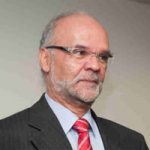 Luiz Claudio Costa
Luiz Claudio Costa
President of IREG Observatory and Academic Ranking and Excellence, Academic Vice Rector of IESB University.
Former Minister of Education, Federal Government of Brazil, Former Rector of Federal University of Viçosa. Former President of the National Institute of Educational Studies and Research Anísio Teixeira (INEP), Brazil. Former Vice President of the PISA (Program for International Student Assessment) of OECD. PhD from the Reading University (UK) currently serves as Academic Vice Rector of IESB University, Brazil.
 Waldemar Siwinski
Waldemar Siwinski
Vice President, IREG Observatory on Academic Ranking and Excellence; President, Perspektywy Education Foundation.
Waldemar Siwiński graduated from the Faculty of Electronics of the Warsaw University of Technology; he also studied at the postgraduate School of Diplomacy in Warsaw. Waldemar Siwinski has considerable experience as author of professional rankings. He prepared over 40 rankings of universities, business schools and secondary schools in Poland. WS has extensive and rich media background as writer, journalist and manager. WS served as president of the Polish Press Agency (PAP). WS was bureau member of the European Alliance of News Agencies (EANA); board member of the European PressPhoto Agency (EPA); member of the International Press Institute. He was also Chairman of the Conference of Polish Media. As President of Perspektywy Foundation WS is active in Academic Cooperation Association (ACA).
Mr. Siwinski founded and headed for several years “Perspektywy Press”, a publishing and marketing company specializing in education. In October 2009, WS was elected Vice President of the IREG Observatory on Academic Ranking and Excellence.
 Francesco Ubertini
Francesco Ubertini
Rector, University of Bologna
After a PhD in Mechanics of Structures at the University of Bologna, a post-doc study grant and a research fellowship, he became university researcher in Construction Sciences at the then-Faculty of Engineering and, from 2001 to 2007, associate professor. In 2007 he became a full professor of Mechanics of Solids and Structures at the University of Bologna.
Francesco Ubertini is the President of Federico Zeri Foundation, of Fanti Melloni Foundation, of Bologna Business School Foundation, of the Board of the Confucius Institute at the University of Bologna since 2015. He is member of the council of the Observatory Magna Charta Universitatum for the four-year period 2016-2020. He is President of Bononia University Press srl since 2016 and President of Uniadrion (2017-2018) and Member of the CRUI (Conference of Italian University Rectors) Board.

Jarosław Gowin
Deputy Prime Minister and Minister of Science and Higher Education of Poland
Jaroslaw Gowin was born on 4th December 1961 in Krakow. In the 1980s, he was a member of the Independent Students’ Association and the ‘Solidarity’ trade union. He was a holder of the University of Cambridge scholarship.
From 1989 to 1994, he worked as an assistant editor for the monthly magazine Znak and from 1995 to 2005, he was its editor-in-chief. Jarosław Gowin was the mind behind the Tischner Days and the ZNAK Flying University. He is an author of many books, articles, reviews and memories.
He was a founder and is a former rector of the Tischner European University in Krakow, established in 2003. In 2005, Jarosław Gowin was elected to the fourth term Senate. He was a member of the Science and Education Committee and the Local Government and Public Administration Committee.
In 2007, he was elected to the Sejm (6th term). He was a Chairman of the Zjednoczona Prawica Parliamentary Club in the seventh term of the Sejm. In his parliamentary work, Jarosław Gowin led the Team for Bioethics Convention and chaired an extraordinary committee considering parliamentary draft bills to amend the Constitution. He is also a member of the National Security Council.
Jarosław Gowin cooperates with the Santa Claus Foundation, which supports the establishment of homes for single mothers and hospices, and the Siemacha association. He is also a member of the Board of Patrons of the Józef Tischner Krakow Children’s Hospice.
He lives in Krakow with his wife, three children and a grandson. He spends his free time hiking in the mountains with his family or reading books. Jarosław Gowin is baroque music lover.
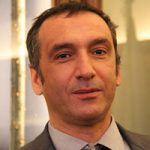 Mirko degli Esposti
Mirko degli Esposti
Deputy Rector Alma Mater Studiorum Università di Bologna; Member, IREG Observatory Executive Committee
Mr. Degli Esposti is Full Professor at the Department of Computer Science and Engineering, Deputy Rector Alma Mater Studiorum Università di Bologna, Dean of Biblioteca Universitaria di Bologna, Head of Service for the health and safety of people in the workplace, President of the Alma Mater Foundation and Delegate for Rankings.
Mr. Degli Esposti is also a member of the QS Intelligence Unit Advisory Board, National Coordinator for Italy for the UI GreenMetric Network, and coordinator of a working group on Academic rankings at the Conference of Italian University Rectors, CRUI.
 Fernando León García
Fernando León García
Cetys University System
Dr. León-García has served as President of CETYS University since 2010, leading the institution to accreditation in the USA (WASC, ACBSP, ABET) and one of the highest student mobility rates in Mexico. He was previously Chancellor of City University of Seattle‘s International Division, covering programs, campuses, and sites across the Americas, Europe and Asia.
Dr. León-García is currently President-Elect of the International Association of University Presidents (IAUP), Chair of the Commission on International and Global Engagement (CIGE) of the American Council on Education, President of CONAHEC (Consortium for North American Higher Education Collaboration), and Chair of the Standards and Accreditation Committee of the Mexican Federation of Private Universities (FIMPES). He is also a member of different Boards, Commissions or Advisory Councils such as: Western Association of Schools and Colleges (WASC); Council for the Advancement and Support of Education (CASE); Association of Governing Boards (AGB); Universia-México; Hispanic Association of Colleges and Universities (HACU); and NAFSA.
A graduate of the B.S. in Industrial Engineering from CETYS University, Dr. León-García holds a doctoral degree in Educational Administration and Policy Analysis and an M.A. in International Development Education from Stanford University.
 Nian Cai LIU
Nian Cai LIU
Director of the Center for World-Class Universities, Member of IREG Observatory Executive Committee
Professor Nian Cai LIU took his undergraduate study in chemistry at Lanzhou University of China. He obtained his doctoral degree in polymer science and engineering from Queen’s University at Kingston, Canada. He moved to the field of educational research in 1999, before which he was a professor in polymer science and engineering.
Prof. LIU is currently the Director of the Center for World-Class Universities and the Dean of Graduate School of Education at Shanghai Jiao Tong University. His current research interests include world-class universities and research universities, university evaluation and academic ranking, research evaluation and science policy, globalization and internationalization.
Prof. LIU has published extensively in both Chinese and English. His latest books include “How World-Class Universities Affect Global Higher Education: Influences and Responses” and “Paths to a World-Class University: Lessons from Practices and Experiences”. The Academic Ranking of World Universities, an online publication of his group (http://www.ShanghaiRanking.com), has attracted attentions from all over the world.
Prof. LIU has been enthusiastic in professional services. He is on the editorial/advisory boards of several international journals including Scientometrics, Research Evaluation.
 Robert Morse
Robert Morse
Chief Data Strategist for US News & World Report, Member of IREG Observatory
Robert Morse is in charge of producing the America’s Best Colleges, the America’s Best Graduate Schools and America’s Best High Schools rankings all of which are published annually by U.S. News & World Report. He takes the lead role in survey design, ranking methodology changes and higher education research as well as monitoring data collection.
Mr. Morse developed most of the current methodologies that are used in the America’s Best Colleges and America’s Best Graduate Schools ranking projects and has been working full-time on both the America’s Best Colleges and America’s Best Graduate Schools publications starting in 1989. U.S. News has published the America’s Best Colleges rankings annually starting in 1987. Mr. Morse is the author of a widely read blog on academic rankings called Morse Code Inside the College Rankings. Mr. Morse is a founding member and is on the Executive Committee of the International Ranking Experts Group.
 Deborah Werner
Deborah Werner
U-Multirank Project Manager
Deborah joined CHE – Centre for Higher Education as a project manager at the international university ranking “U-Multirank” in 2017. In the context of this project which is co-funded by the European Commission, she is responsible for the collection and analysis of data in the subject rankings and corresponding with the participating institutions’ data co-ordinators. Deborah gained a BA degree in Governmental Sciences at Erfurt University (Germany), an MA degree in European Studies at Maastricht University (Netherlands) before she took her PhD degree in Politics at the University of Leicester (UK).
 Ben Sowter
Ben Sowter
Senior Vice President, QS Quacquarelli Symonds Unit
Ben spent two years working for the UK national office of international student charity, AIESEC, for which he was ultimately elected National President. Ben leads the QS Intelligence Unit who are fully responsible for the operational management of all major QS research projects including the QS Top MBA Applicant and Recruiter Research, the QS World University Rankings® and the QS Asian University Rankings.
Ben has travelled to over 40 countries and spoken on his research in over 20. He has personally visited over 35 of the world’s top 100 universities amongst countless others and is also a regular speaker on the conference circuit.
 Simona Bizzozero
Simona Bizzozero
Communications Director, QS
Simona is the Director of Communications at QS Quacquarelli Symonds, which she joined in 2001. She is a member of the QS Rankings Executive Advisory Board and led the promotion of the World University Rankings since their inception.
Her role encompasses corporate communications, public and media relations, and branding. With the support of her capable team, Simona has built strong working relationships with hundreds of influential journalists, commentators and bloggers around the world and has contributed to grow the global impact of QS as a thought leader in higher education. Since 2014, Simona is also the Director of the Reimagine Education Awards & Conference, a global initiative aimed at identifying and reward the most innovative pedagogies to enhance learning outcomes and employability. Reimagine Education is supported by leading universities and technology companies such as Amazon, Google, Microsoft and IBM. Before joining QS, Simona worked in creative sectors, including fashion, publishing, and broadcasting. Simona is passionate about fostering and celebrating diversity and inclusion, both in education and in the workplace.
 Ben Sowter
Ben Sowter
President, Conference of Italian University Rectors (CRUI), Rector, University of Naples “Federico II”
Member of: EERI (Earthquake Engineering Research Institute), FIB (Federation Internationale du Beton), ASCE (American Society of Civil Engineering), ACI (American Concrete Institute), ISO (International Standard Organization). Member of ASCE Journal of Composites for Costructions Editorial Board.
Coordinator and Director of many scientific projects financed by: European Community, Italian Ministry of University and Research, Italian Ministry of Industry, National Council of Research, National Insitute of Geophysics and Volcanology, and many National and Intenational Enterprises and Research Centres, for a total amount of over 50 million euros. Author of more than 500 scientifc papers published on international and national journals, congress proceedings and commissions.
 Ellen Hazelkorn Bizzozero
Ellen Hazelkorn Bizzozero
Dublin Institute of Technology
Professor Hazelkorn is Policy Advisor to the Higher Education Authority (HEA) and Emeritus Professor and Director, Higher Education Policy Research Unit (HEPRU), Dublin Institute of Technology (Ireland). She is President of EAIR (European Higher Education Society), and on the Advisory Board and the Management Committee, Centre for Global Higher Education (CGHE), UCL Institute for Education, in addition to being an International Co-Investigator.
Ellen is internationally recognised for her writings and analysis of the impact and influence of rankings on higher education policy and institutional decision-making. Rankings and the Reshaping of Higher Education: The Battle for World-Class Excellence (2nd ed.) was published in 2015. In addition, she has authored Developing Research in New Institutions (OECD, 2005), co-edited Rankings and Accountability in Higher Education: Uses and Misuses (UNESCO, 2013), and co-authored, Rankings in Institutional Strategies and Processes: impact or illusion? (EUA, 2014).
 Dirk Van Damme
Dirk Van Damme
Senior Counsellor, Education and Skills, OECD
Dirk Van Damme currently is Head of Division in the Directorate for Education and Skills at the OECD in Paris. He holds a PhD in educational sciences from Ghent University and is also professor of educational sciences in the same university (since 1995). In his academic career he was also part-time professor in comparative education at the Free University of Brussels (1997-2000) and visiting professor of comparative education at Seton Hall University, NJ, USA (2001-2008). His main academic work focused on the history of education, comparative education, lifelong learning and international higher education. He also served in various positions in the field of education policy in the Flemish part of Belgium, among others as general director of the Flemish Rectors’ Conference, as deputy and chief of staff of various Flemish education ministers. He was responsible for developing and implementing policies focusing on equality of opportunity in education and the implementation of the Bologna Declaration in his country. His current interests are evidence-based innovation in education, comparative analyses of educational systems, open education and quality issues in higher education. At the OECD he is responsible for the Skills Beyond School (SBS) division, covering work on skills, adult learning, vocational education and higher education. He is also the Directorate’s focal point for the OECD’s Inclusive Growth Initiative.
 Richard Holmes
Richard Holmes
Blogger, University Ranking Watch
Richard Holmes holds master’s degrees from the Universities of Cambridge and Surrey and a doctorate from Binghamton University SUNY. He has worked at colleges and universities in the USA, Nigeria and Malaysia, including the University of Maiduguri, the International Islamic University Malaysia and Universiti Teknologi MARA and has written on social history, historical archaeology and applied linguistics. His work has been published in journals such as English for Specific Purposes, Innovations in Education and Teaching International, and ITL Review of Applied Linguistics.
He is currently interested in international university rankings and produces the blog University Ranking Watch. He has also written on rankings for a variety of publications including WONK HE, Study International, the Asian Journal of University Education, and Arabia Higher Education.
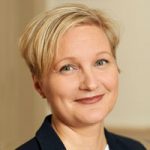 Tia Loukkola
Tia Loukkola
Director, Institutional Development, EUA
Tia Loukkola is Director of Institutional Development at European University Association (EUA). In this capacity she has overall responsibility for the Association’s activities that aim to support EUA’s member universities in developing their institutional capacity in particular in quality assurance and learning & teaching. She is responsible for representing representing EUA at European level policy discussions and for management of EUA’s Institutional Evaluation Programme, the European Quality Assurance Forum and various projects run by the association. The dossier also includes monitoring developments in the global university rankings.
Before joining EUA in April 2008 Tia worked at the University of Turku in Finland for ten years in various capacities both in faculty and central administration. She holds a Master’s degree in French language and culture from the same university.
 Mikhail Strikhanov
Mikhail Strikhanov
Rector, National Research Nuclear University MEPhI (Moscow Engineering Physics Institute)
Mikhail Strikhanov has been the rector of National Research Nuclear University Moscow Engineering Physics Institute since 2007, having previously served in a variety of roles, including deputy minister of education of the Russian Federation. His research focus on nuclear physics, the interaction of radiation with matter and the physics of nanostructures. In 2009, he was the recipient of the governmental award of the Russian Federation in science and technology and has twice presented with the governmental award of the Russian Federation in education.
 Sumathi Subramaniam
Sumathi Subramaniam
Policy officer, European Commission, Youth, Sport and Culture
Sumathi Subramaniam, European Commission, DG Education, Youth, Sport and Culture, is a Policy Officer in the unit for Policy on Higher Education. Her key responsibilities include: the Knowledge Hub for Higher Education that aims to ensure optimal synergies between higher education knowledge tools such as U-Multirank and European Tertiary Education Register to enable research to better support policy development; higher education links with research and innovation; the European Universities initiative; STEM education – STEAM approach to address Europe’s unmet demand for STEM and ICT graduates, and in particular the need to break down STEM discipline silos for interdisciplinary STEM education integrating non-STEM fields and transversal skills. Before joining the DG, she worked as a Senior Adviser at the Division of Research Administration, University of Bergen, Norway. She is a trained medical microbiologist and has worked on numerous research projects in Norway, Switzerland and Singapore.
Albert Sangra Morer
Director, UNESCO Chair in Education and Technology for Social Change; Professor, Open University of Catalonia (Spain)
Mikhail Strikhanov has been the rector of National Research Nuclear University Moscow Engineering Physics Institute since 2007, having previously served in a variety of roles, including deputy minister of education of the Russian Federation. His research focus on nuclear physics, the interaction of radiation with matter and the physics of nanostructures. In 2009, he was the recipient of the governmental award of the Russian Federation in science and technology and has twice presented with the governmental award of the Russian Federation in education.
Claudio Colaiacomo
Vice President, Academic and Government Relations, Elsevier
Claudio Colaiacomo is a Vice President at Elsevier with decennial experience and responsibilities in Global Academic Relations. He holds a MS in solid state Physics and a MBA. In his role he engages with scientific communities around Europe and policy makers fostering partnerships and leveraging synergies. Claudio is also a book author.
Martin Ince
Communications Director, QS
Mikhail Strikhanov has been the rector of National Research Nuclear University Moscow Engineering Physics Institute since 2007, having previously served in a variety of roles, including deputy minister of education of the Russian Federation. His research focus on nuclear physics, the interaction of radiation with matter and the physics of nanostructures. In 2009, he was the recipient of the governmental award of the Russian Federation in science and technology and has twice presented with the governmental award of the Russian Federation in education.
Gianna Fregonara
Journalist Corriere della Sera
Gianna Fregonara is a journalist, is in charge of the Education desk at Corriere della Sera, italian leading daily newspaper after having covered politics and led the roman edition of the newspaper. Coordinator of the book ” I voti all’Università”, quality evaluation of italian research, Corriere della Sera, 2013.
Aside of the paper edition Corriere offers a special webpage dedicated to Education www.corriere.it/scuola
Robert Kelchen
Assistant Professor, Seton Hall University
Robert Kelchen is an assistant professor of higher education at Seton Hall University in the United States. His research interests include higher education finance, accountability policies, and student financial aid. He is the author of Higher Education Accountability (Johns Hopkins University Press, 2018) and is the data editor of Washington Monthly magazine’s annual college rankings. He is frequently quoted in American and international media outlets and has been recognized as one of the most influential faculty members on social media by Education Week and The Chronicle of Higher Education. Professor Kelchen holds a bachelor’s degree in economics and finance from Truman State University, a master’s degree in economics from the University of Wisconsin-Madison, and a PhD in educational policy studies from the University of Wisconsin-Madison.
Gero Federkeil
Head of Intenational Rankings, U-Multirank Consortium
Gero Federkeil is Head of International Rankings at CHE – Centre for Higher Education, Guetersloh, Germany, and Coordinator of U-Multirank. In October 2009, he was elected Vice-President of the IREG Observatory on Academic Ranking and Excellence.
At CHE he is responsible for international ranking activities, including the U-Multirank project funded by the European Union.
He is an internationally recognized expert in the field of rankings. His main fields of work and publications include rankings, performance indicators, benchmarking, quality assurance and issues of employability/ university – labour market relations. He is a member of the German Association of Evaluation.
He holds a Master Degree in Sociology (1989) from Bielefeld University.
César Wazen
Director of International Affairs, Qatar University
César Wazen’s interests in rankings, academic accreditation and student assessment are backed by extensive experience in recruitment, teaching maths and statistics as well as in whole-school accreditation. He holds a BSc in mathematics, a teaching diploma and a master’s in educational administration and policy studies at the American University of Beirut.
Alexander Bedny
Vice Rector, Lobachevsky University
Education: Lobachevsky University, Specialist Degree in Economics (2001); University of Roskilde, Denmark, Bachelor of Business Administration (2001); PhD in Sociology (2005), Associate Professor (2012). At Lobachevsky University since 2001. Dean of the Faculty for International Students (2005-2017), Head of the Center for Student Innovation Entrepreneurship (since 2011), Head of the International Affairs Administration (2012-2017), Vice-Rector for International Affairs (since 2013). Since 2016, Dr. Bedny has been responsible for managing the Russian Academic Excellence Project “5-100” at Lobachevsky University.
Research interests: Sociology of Management, University Management, and Internationalization, author of 47 publications in these fields.
Nikita Avralev
Vice Rector, Lobachevsky University
Education: Lobachevsky University, Faculty of International Relations. From 2001 to 2009, Nikita served as a Press-Secretary and Assistant to the Deputy of the City Council of Nizhni Novgorod (Legislative Assembly of the Nizhni Novgorod region) A. Bochkarev; from 2005 to 2009 he worked as a Head of Public Relations Department of the Regional Office of the political party «Spravedlivaya Rossiya»(«Fair Russia» (formerly the Russian Pensioner’s Party) in the Nizhni Novgorod region.
In 2009 he became the Director of the Public Relations Office of Lobachevsky State University of Nighni Novgorod. As of November 12, 2013, Nikita Avralev is a Vice-Rector for Public Relations of Lobachevsky State University of Nizhni Novgorod.
Alex Usher
President, Higher Education Strategy Associates
An internationally recognized expert in student financial aid and quality measurement in post-secondary education, Mr. Usher has authored numerous ground-breaking studies in higher education. In addition to his years of work on higher education in Canada, his recent work spans Asia, Europe and Africa as well.
In his former role as Director of Educational Policy Institute Canada (EPI Canada), Mr. Usher managed the Measuring the Effectiveness of Student Aid Project for the Millennium Scholarship Foundation, a 4-year $4 million research project to investigate the long-term effects of student aid and is the author of the project’s Final Report, appearing in early 2010. In 2002 and 2004, Mr. Usher co-authored (with Sean Junor) the Price of Knowledge, a volume considered the standard reference on student finance in Canada. More recently, he has written the theme document for UNESCO Europe’s decennial meeting on higher education, Ten Years Back and Ten Years Forward: Developments and Trends in Higher Education in Europe Region. He sits on a variety of advisory, supervisory and editorial boards in Canada, Europe and Asia.
Daniel J Guhr
Managing Director, Illuminate Consulting Group
Dr. Guhr has served as ICG’s Managing Director since 2002. Prior to founding ICG, he worked as a strategy consultant with the Boston Consulting Group in Munich and San Francisco, and as a Director of Business Development with SAP in Silicon Valley.
Dr. Guhr has served on numerous committees and boards, including the Provost’s Council of the Rachel Carson College at the University of California at Santa Cruz, and the Council of Bonn University’s Universitätsgesellschaft.
He is the past Chair of the Economic Development Advisory Commission of the City of San Carlos, the past President of the Oxford University Society’s San Diego branch, and the past Chair of the Brittan Acres School Council.
Hanne Poelmans
Research Coordination Office, Hasselt University
Dr. Hanne Poelmans is staff member of the Information Management and Data-analysis division of the Research Coordination Office at Hasselt University and of the ‘Data and classification’ governance project of the Expertise Centre for Research and Development (ECOOM) of the Flemish government.
Dr. Poelmans is responsible for the data collection of university rankings for Hasselt University, member of the U-Multirank network of institutional coordinators (UNICO), member of the Flemish project on harmonising the semantics used in university rankings in coordination with the Flemish Interuniversity Council (VLIR), and chair of the VLIR ad hoc working group on university rankings.
Sadia Vancauwenbergh
Head Information Management and Data-Analysis, Research Coordination Office, Hasselt University (Belgium); Project Leader ECOOM-Hasselt – Research Classification Governance
Dr. Sadia Vancauwenbergh is head of the Information Management and Data-analysis division of the Research Coordination Office at Hasselt University and coordinator of the ‘Data and classification’ governance project of the Expertise Centre for Research and Development (ECOOM) of the Flemish government. In addition, Dr. Vancauwenbergh is leading a Flemish project on harmonising the semantics used in university rankings in coordination with the Flemish Interuniversity Council (VLIR). With this respect, she participates in the VLIR ad hoc working group on University rankings and UNICO, the U-Multirank network of institutional coordinators.
Jacques Marcovitch
Former rector of USP
Professor of Management and International Affairs at the University of São Paulo (Brazil) and a Board member of IHEID-International Relations and Development Studies Institute (Geneva). His past appointments include Rector of the University of São Paulo, President of Electric Utilities of the State of São Paulo and Director of the Institute for Advanced Studies. A graduate of Vanderbilt University (USA) in the field of Management, he has been awarded a Doctor Honoris Causa (Université Lumiere, Lyon), Officier de l’Ordre des Palmes Académiques and Chevalier de la Legion d´Honneur (France). As a member of scientific institutions, he was awarded Brazilians recognitions as the Grão-Cruz da Ordem de Rio Branco and the Medal of Scientific Merit. Professor Emeritus of the School of Economics, Management and Accounting (USP), his research and publications focus on higher education, environmental challenges, entrepreneurship and Latin America.
Sabine Righetti
Coordinator of the Brazilian National Ranking “Folha de São Paulo”
Sabine Righetti is part-time professor at the Public Administration Department at Getulio Vargas Foundation (FGV-SP) and associated researcher at Unicamp (University of Campinas), the same institution where she concluded her master’s and doctorate in Scientific and Technological Policies. She worked as a science and education reporter for more than ten years writing for places such as Folha de S. Paulo, one of the most influential daily news vehicles in Brazil. Since 2012, she coordinates the Folha’s University Ranking – RUF (Ranking Universitário Folha – RUF). The ranking and her work as journalist earned her six journalism national awards. Sabine Righetti is also a Knight Fellow (University of Michigan ‘2012), Eisenhower Fellow (2014) and Lemann Fellow (Stanford University’ 2017) working with education and higher education assessment.
Luciana Sacchetti
University of Bologna
Luciana Sacchetti is qualified auditor for ISO 9001 (quality management system) and CAF (Common Assessment Framework). Her main field of activity is to give support to the thirty-two research departments in implementing a quality management system focused on research processes. She also deals with the implementation of proactive actions to improve the institutional standing of the University of Bologna in both international and national university rankings and league tables.
Since October 2017, the University of Bologna coordinates a working group of 72 Italian universities at the Conference of Italian Rectors Foundation in Rome. The CRUI group analyses prerequisites, methodologies, and semantics of indicators to set up proactive actions to accede a selection of academic rankings or to improve their standing.
Ludo Waltman
Deputy Director Centre for Science and Technology Studies (CWTS) at Leiden University
Ludo Waltman is professor of Quantitative Science Studies and deputy director at the Centre for Science and Technology Studies (CWTS) at Leiden University. Ludo leads the Quantitative Science Studies (QSS) research group at CWTS. Ludo is coordinator of the CWTS Leiden Ranking, a bibliometric ranking of major universities worldwide. In addition, Ludo serves as Editor-in-Chief of Journal of Informetrics.
Raghu Raman
School of Business, Coimbatore
Dr. Raghu Raman is Chairman for Amrita School of Business at Coimbatore and Director, Global Rankings & Accreditation, Amrita Vishwa Vidyapeetham.
His main research focus is in the areas of Diffusion of ICT Innovations in socio-technical systems, eGovernance, Big Data Analytics in Education and Health, Social Network Analysis and Virtual Interactive learning environments.
Adriano Scaletta
Italian National Agency for Evaluations of Universities and Research Institute
Over 15 years’ experience in evaluation of national and local public policies. Dr. Adriano Scaletta has been working with public administrations, universities, private and no profit companies to promote start-ups launches and technology transfer from universities to SMEs.
Since 2015 he has been working as evaluator at ANVUR (Italian Agency for the Evaluation of Universities and Research Institutes), currently Head of Performance Evaluation Unit.
He is member of Independent Evaluation Units (OIV) in Public Research and Health Institutes. He is registered in the National OIV list at the Department of Public Administration of Italian Government.
Since 2017 he is member of the Board of Directors at the Italian Evaluation Association (AIV).
CALL OF POSTERS
Poster Proposals
Poster sessions are a means to communicate and exchange ideas, programs, research, and projects to fellow IREG 2019 conference attendees.
Proposals should be send to secretariat@ireg-observatory.org and are due February 23, 2019
Individuals with proposals chosen for inclusion in the IREG 2019 Conference will be notified in early March 2019.
We look forward to seeing you in Bologna!
Poster Session Tips
Posters typically include pictures, data, graphs, diagrams and narrative text on boards that are approximately 100×70 cm. Authors are required to present their posters during scheduled times during the conference.
HOTELS
The offer of availability and special prices in the hotels recommended by the organizers have expired.
Please check rooms at other hotels in Bologna. You may try: www.booking.com or other webpage.
Your form has been submitted
Thank you %NAME% for taking the quiz/survey/feedback.
We have received your answers. You can view it anytime from this link below:
%TRACK_LINK%
We have also attached a copy of your submission.
Server Side Error
We faced problems while connecting to the server or receiving data from the server. Please wait for a few seconds and try again.
If the problem persists, then check your internet connectivity. If all other sites open fine, then please contact the administrator of this website with the following information.
TextStatus: undefined
HTTP Error: undefined
Error
Some error has occured.

















